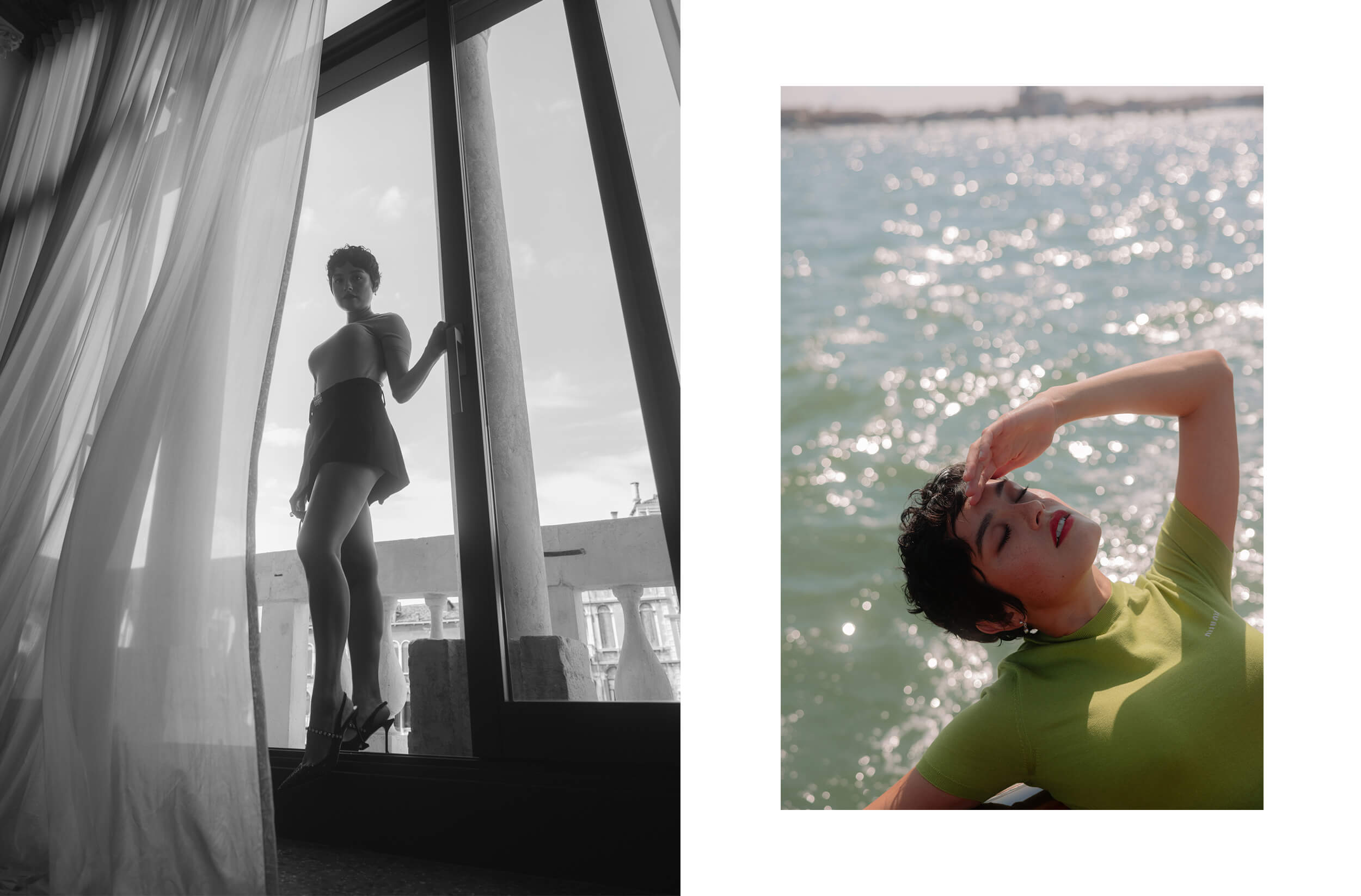In Venice, during the Film Festival, you always have wonderful encounters that inspire you and remind you why you love what you do. And there are certain meetings that you strongly seek out. I even told Chase: “When I found out you would be here in Venice with Miu Miu Women’s Tales and with the short film ‘Moon Lake’, I thought: I absolutely want to meet and interview her”.
Chase Sui Wonders is an incredible actress, writer, and director, whom you’ve surely seen in the horror film (with a good dose of comedy) “Bodies Bodies Bodies”, and we will soon see her again in “The Studio”, a comedy series directed by Evan Goldberg and Seth Rogen, coming out on Apple TV.
With her, we talked about mental health, the importance of cinema in healing oneself, and sometimes, in finding oneself a bit. For Chase, cinema is real life, it’s reality, but also an art that, more than any other, must succeed in the practice of speaking in a specific way, because only then can it help people, create identification and empathy.
And speaking of empathy, it is precisely the observation of people “on the margins” that she encounters in the city she lives in, New York, that serves as inspiration for Chase’s stories, chapters of her life that she transcribes onto paper and brings to the screen, and for this very reason, are worthy of being told and shared.
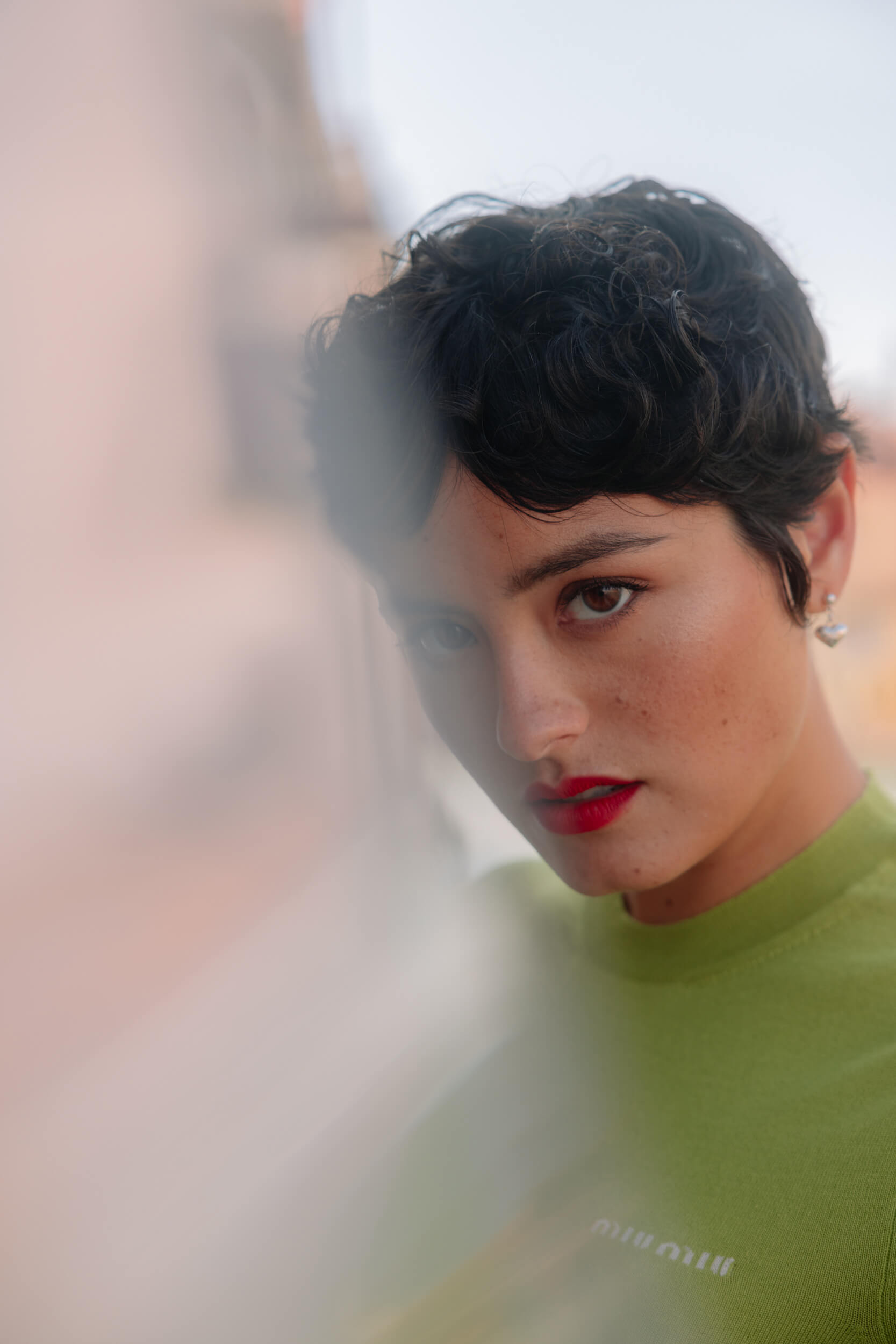
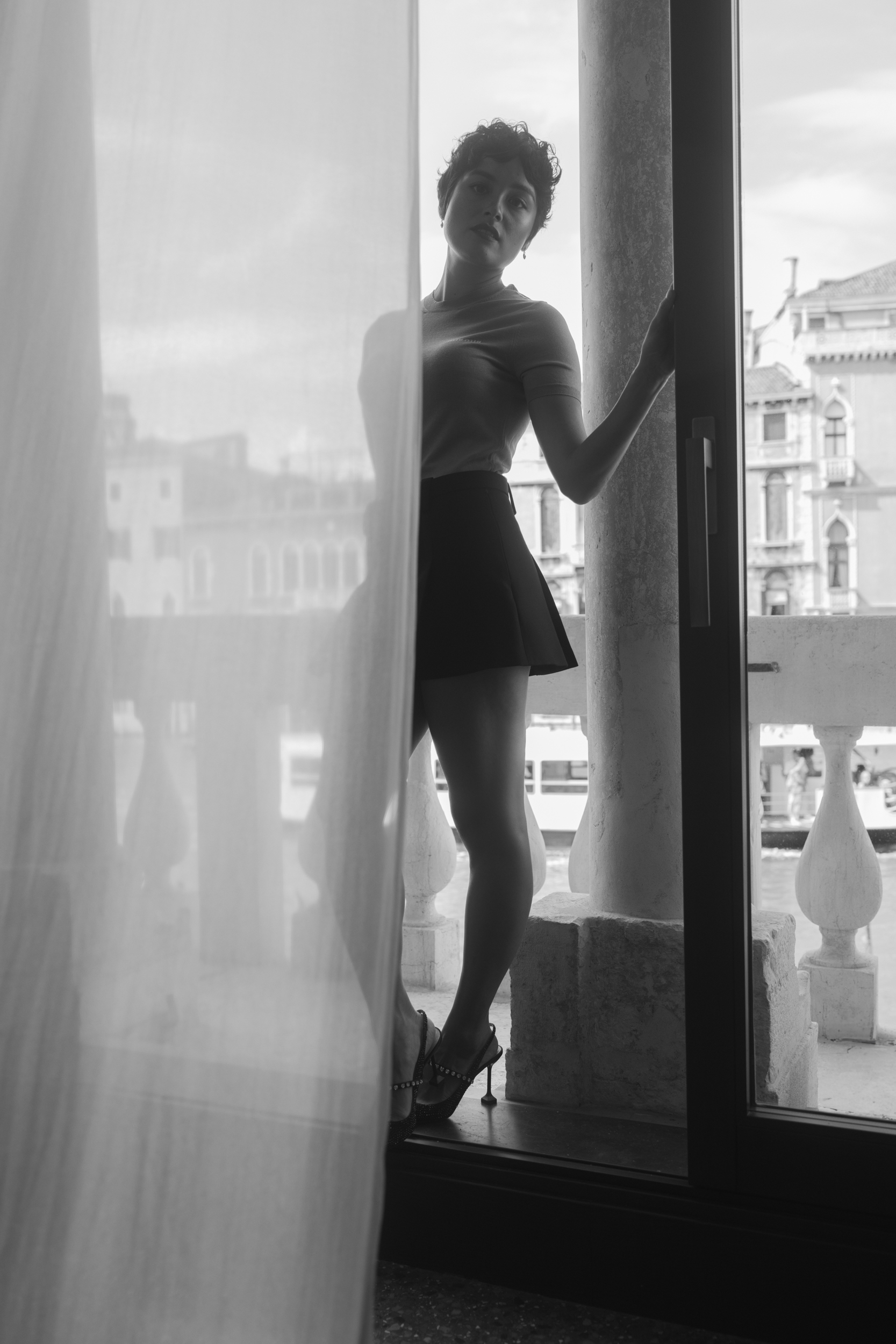
This year you participated in the Miu Miu Women’s Tales at the Venice Film Festival, which I think is an amazing platform for conversation, to create awareness and give power to the right people in the industry. What would you like to start a conversation on?
In movies and in the dialogue between filmmakers and actors, it’s just about telling stories that are specific. I think the more specific the better when it comes to stories – if you can get really into the weeds and the character and the story, you can find something really relatable, human and universal.
My sister’s short and what Miu Miu Women’s Tales is doing kind of go together and they are highlighting female filmmakers and female voices, committed to that specificity and finding underrepresented talent and highlighting filmmakers who don’t usually get an opportunity to make what they want to make.
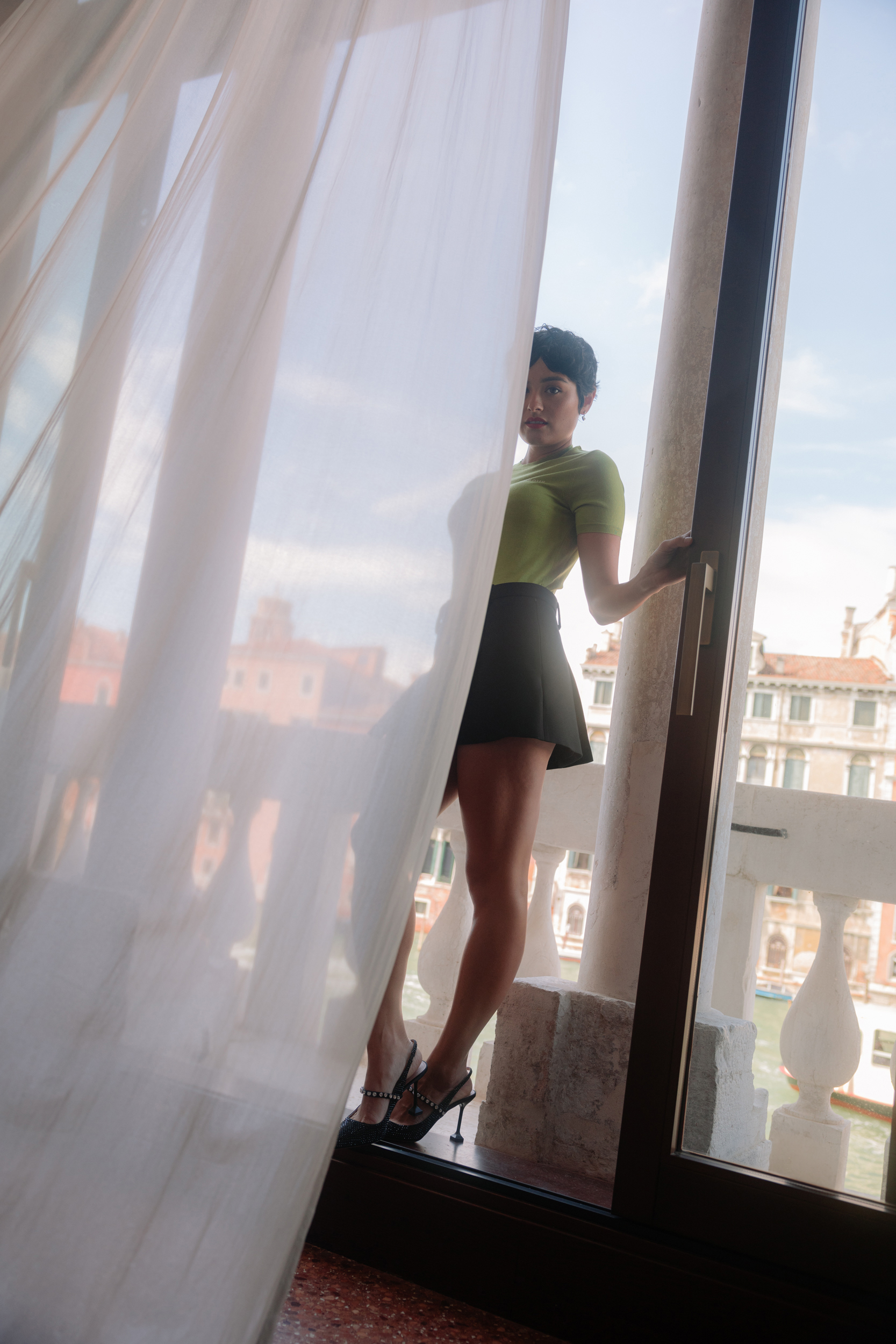
During the panel, you said what you just said to me: “The more specific the story, the more inspiring it is to those who need it”. I think that is very powerful because cinema can really help people to heal sometimes. Does cinema heal you?
Absolutely. Certainly, making it and, as I’m a writer as well, being able to exorcize your demons or ponder certain aspects of your life through a character or through writing is a form of therapy. That doesn’t always mean it has to be heavy and dark – it can be through comedy or through lots of different lenses. I watch movies that challenge my perspective and make me cry or laugh or make me more optimistic about the world, so I think cinema is a really useful tool. Again, the more specific it is, the deeper you will penetrate people’s hearts.
I just did a comedy show with Seth Rogen for Apple, and we were laughing all day every day, and I’d never been on a set like that. It felt criminal to have this to be called a job because it was just so healing, and I hope that when people see it, they’ll have some fun and find a little reprieve from daily life as well.
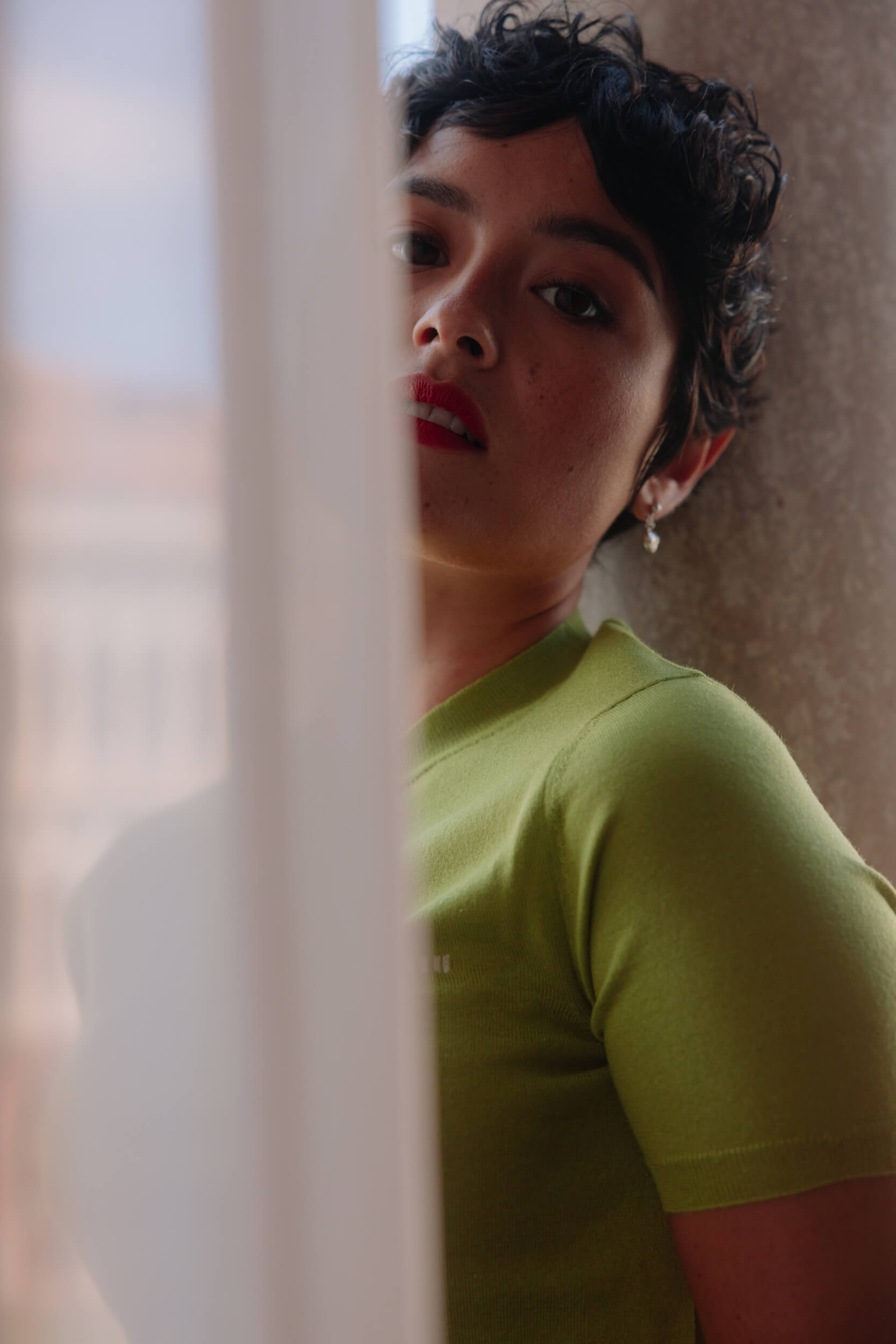
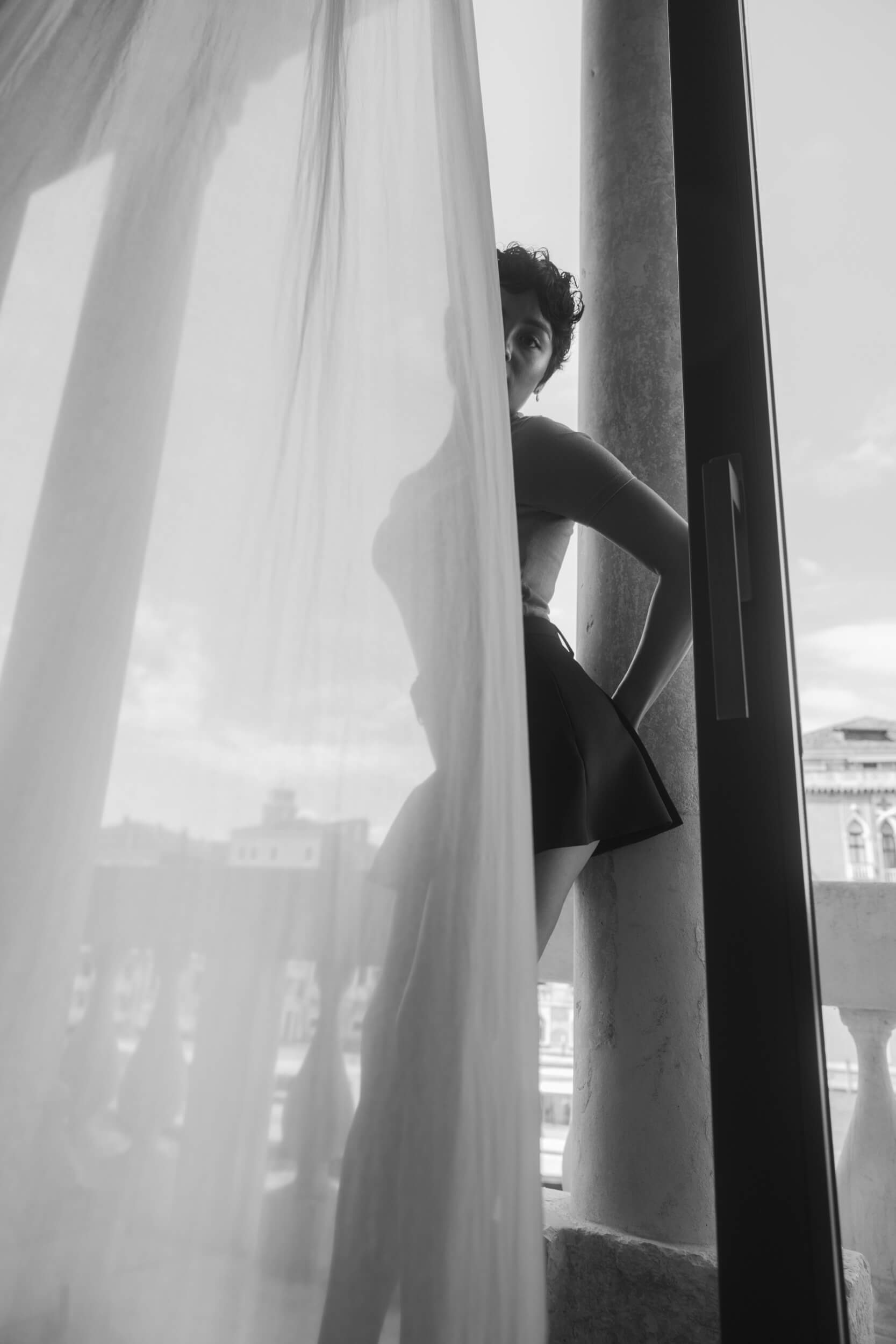
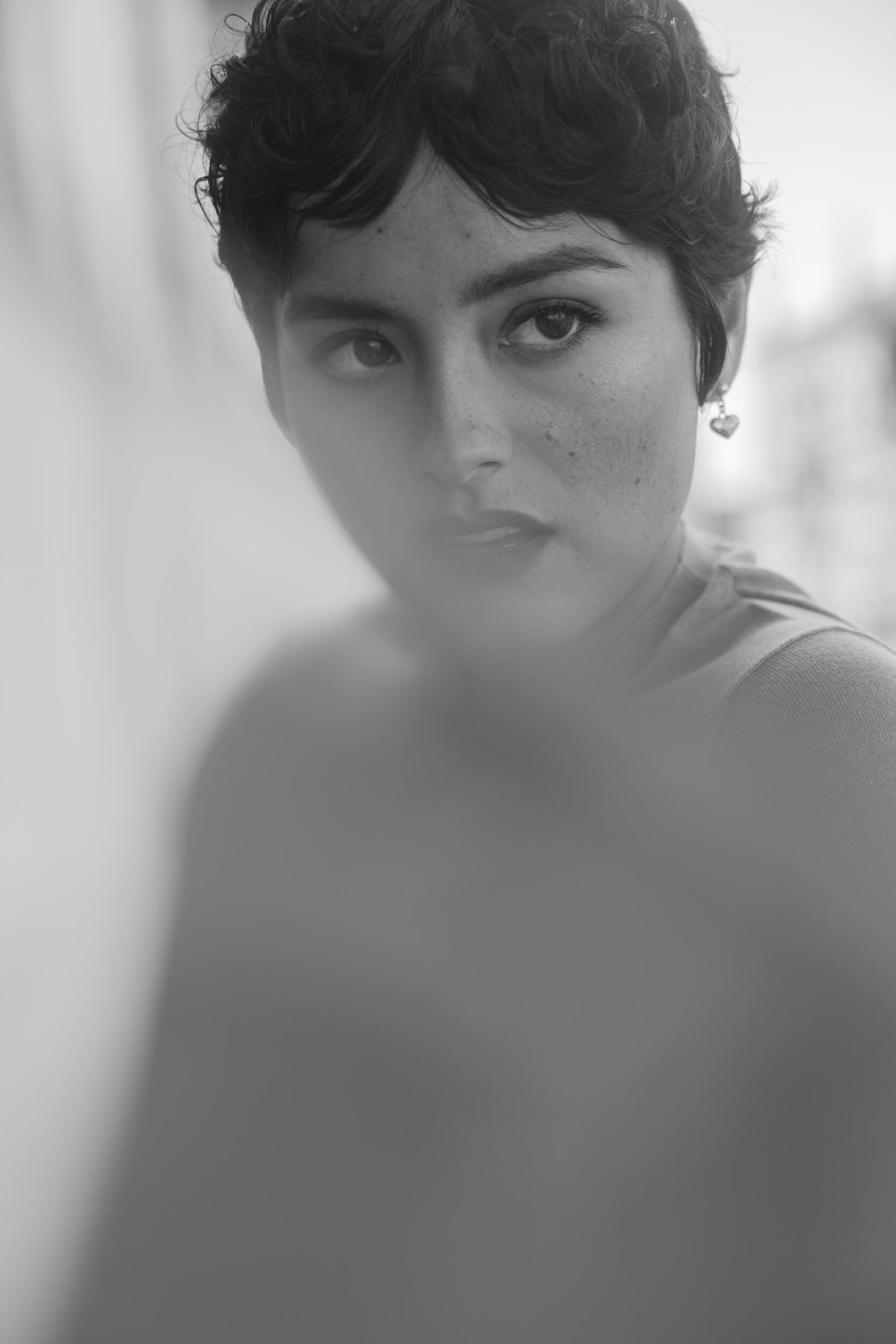
You’re talking about “The Studio”! Was it your first comedy?
I’ve done small parts in comedies, but yeah, this was my first, real hard comedy and a larger piece of the puzzle. Seth Rogen and Evan Goldberg, the creators and showrunners, are comedy legends and icons and the cast is full of people who are titans of comedy, so to be able to work with them felt like a whole new ball game, in the most exciting way.
I can imagine.
Speaking of fashion, instead, I think it’s important when you’re writing something, but also when directing or acting, to “wear the clothes of the characters”. Does fashion play an important role in your life?
In my own life, I definitely appreciate it.
I grew up being a real tomboy, I used to wear hockey sweaters and khaki pants all the time, but especially for my work, fashion is so important, it’s always my entry point into a character – how they dress and how they present themselves says so much about a person. As an individual, I’ve kind of grown into my style a little more and I think it’s so special to be able to feel good and confident in what you’re wearing and feel like it’s an extension of your personality and yourself.
It’s also nice to play characters with a very specific way of dressing and then come back to yourself at the end of the day – what Chase is wearing vs what the character she was playing earlier in the day is wearing.
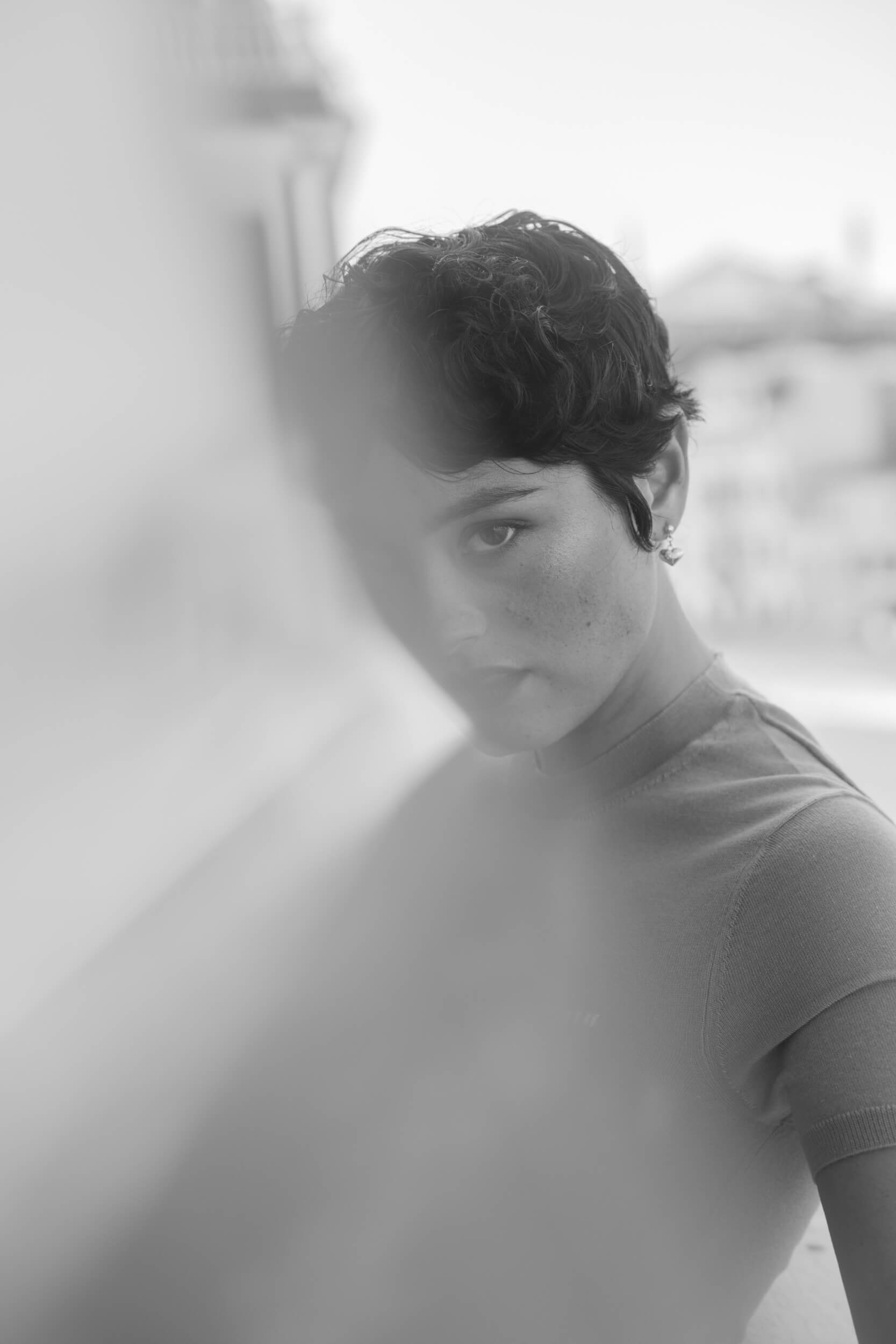
“I think it’s so special to be able to feel good and confident in what you’re wearing and feel like it’s an extension of your personality and yourself.”
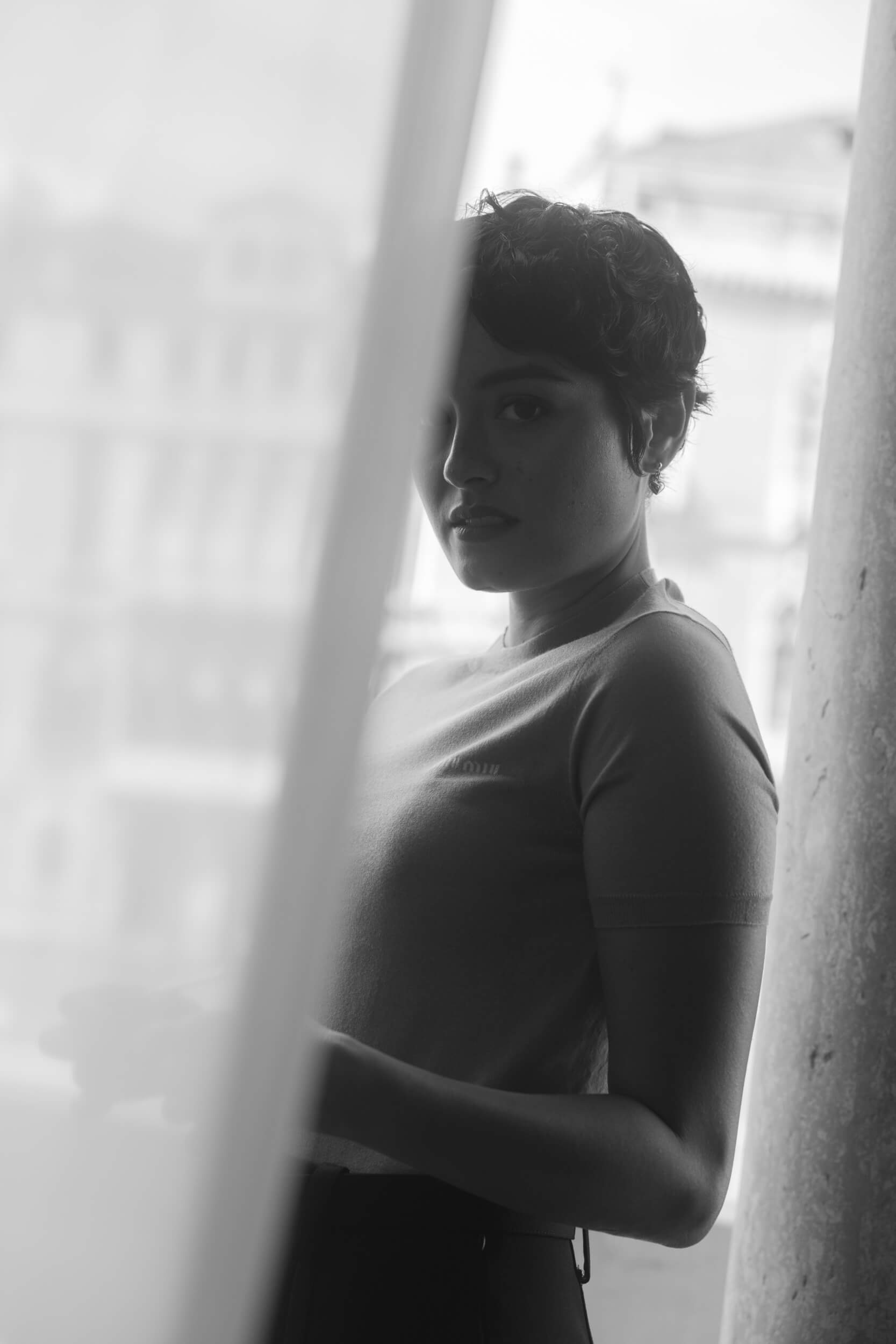
For me, clothes are like armor – if I’m scared or nervous about an appointment or some conversation I have to have, dressing up at that moment is like putting on a shield. Clothes are something that helps me feel stronger. Maybe it sounds silly, but in my career, over the years I’ve been working in the editorial industry, it’s been something that has been protecting me.
Absolutely! I grew up very shy, and I still have that part of me. I’ve kind of grown out of it, but still, if I walk out into a meeting or into a group of people, I’m always pretty intentional and specific about what I wear, just because I want to feel good. Visually, that’s your first impression, so it’s a very important piece of confidence in self-presentation.
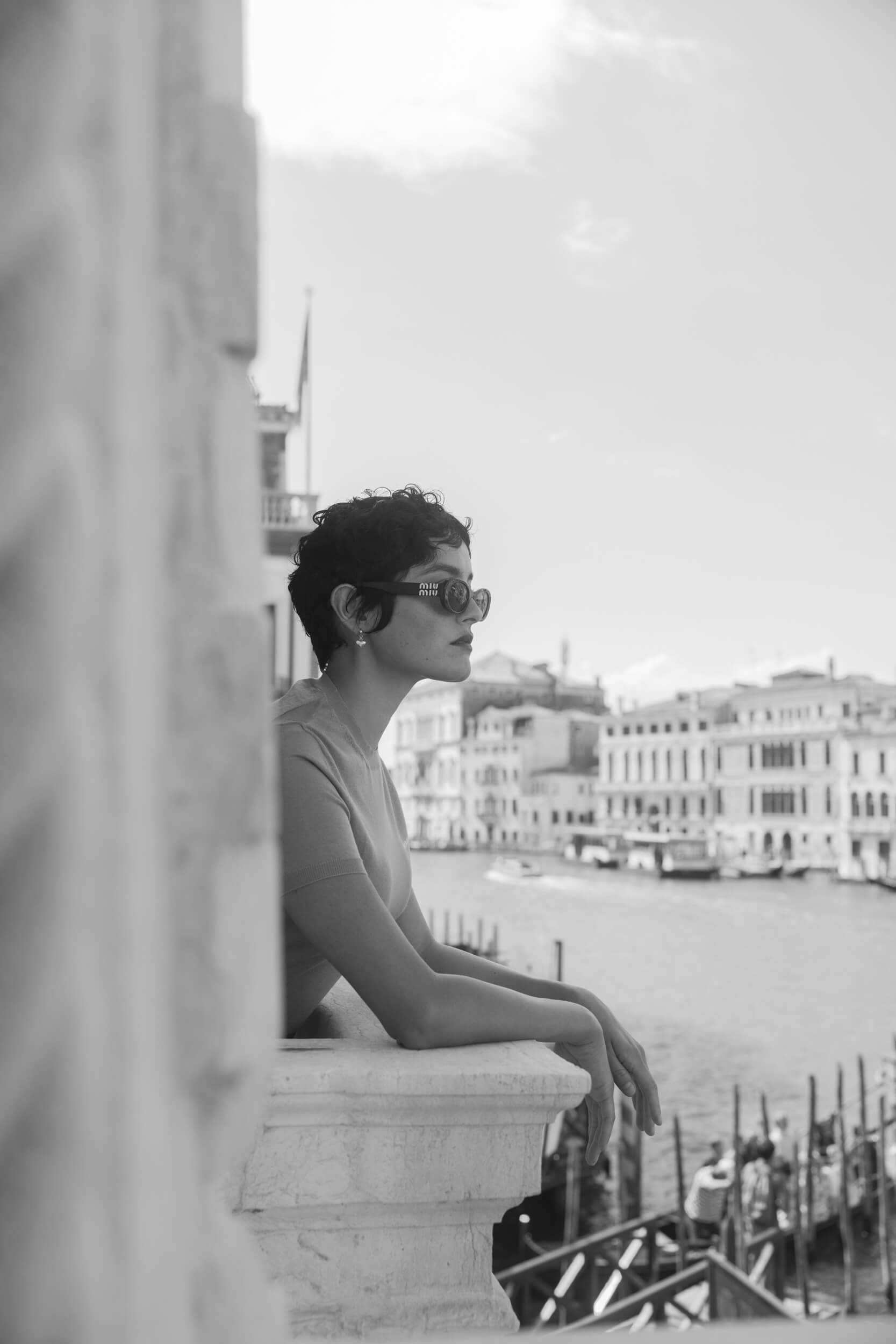
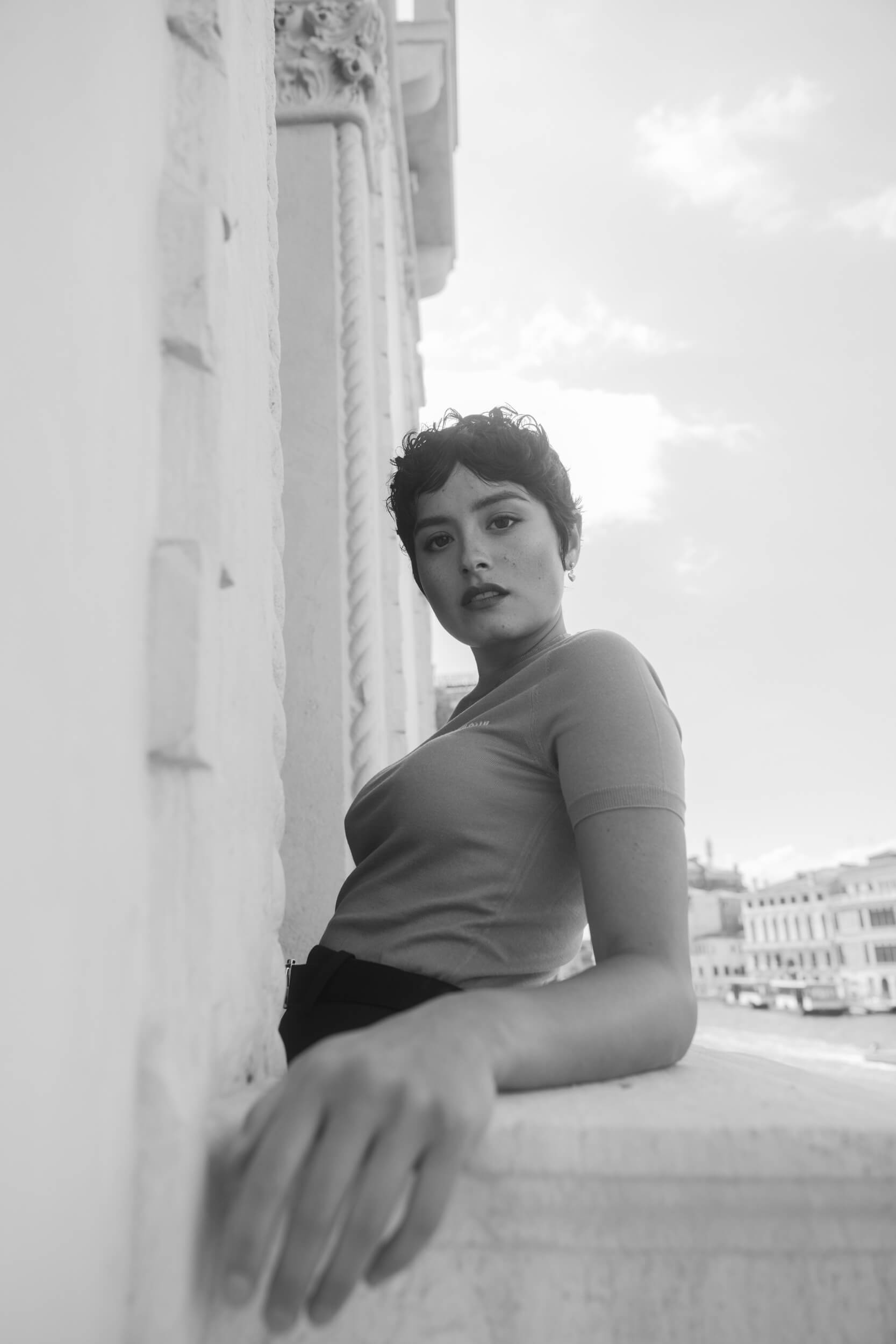
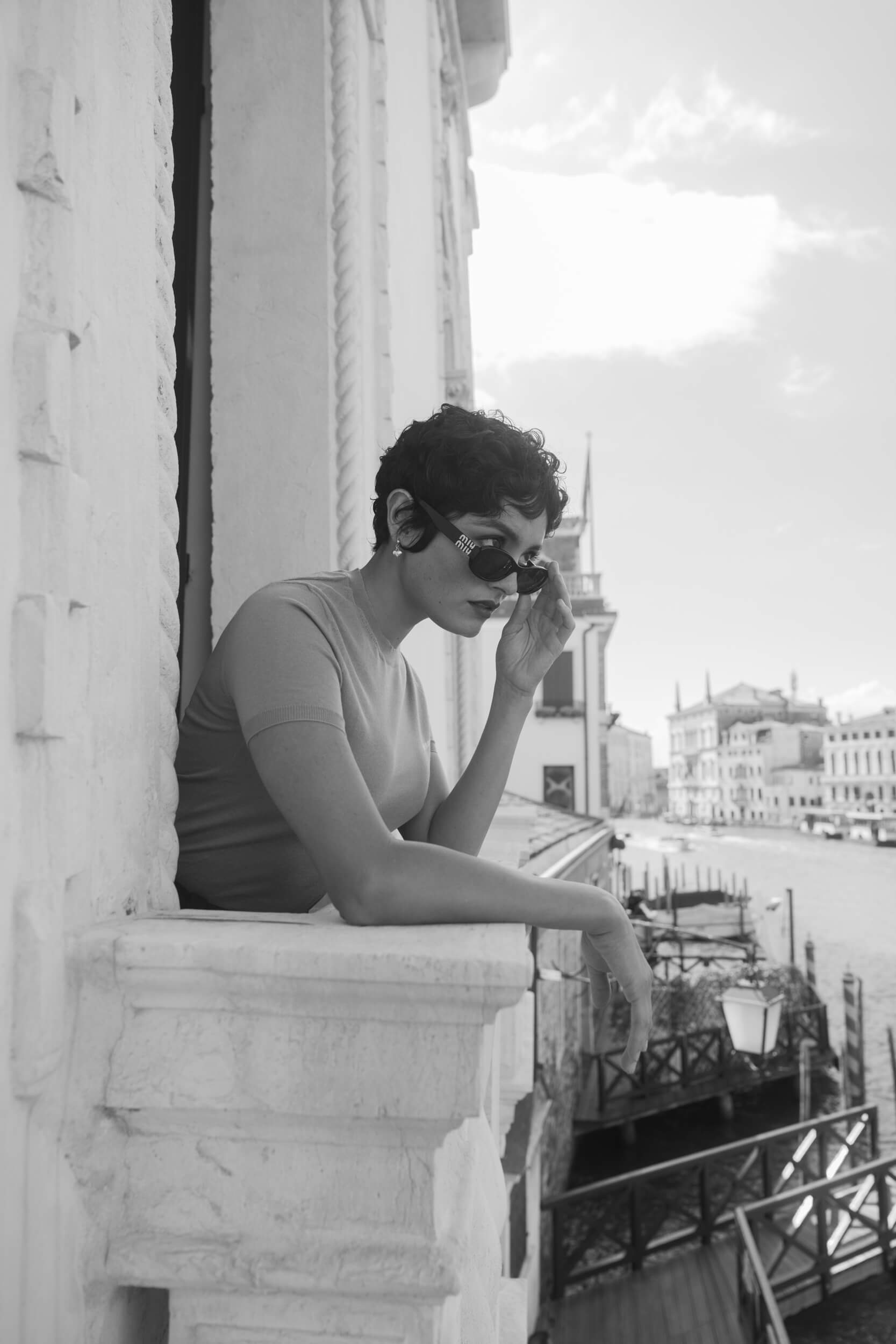
Yeah. Are you writing something these days?
Yes! I’m working with a couple of different production companies on various projects, which is very exciting. Hopefully, I’ll have something in the pipeline soon!
I started as a writer before I was even acting, and now I’m working on a couple of very personal stories, and they all have a comedic bend to them – I’m excited to unleash them into the world.
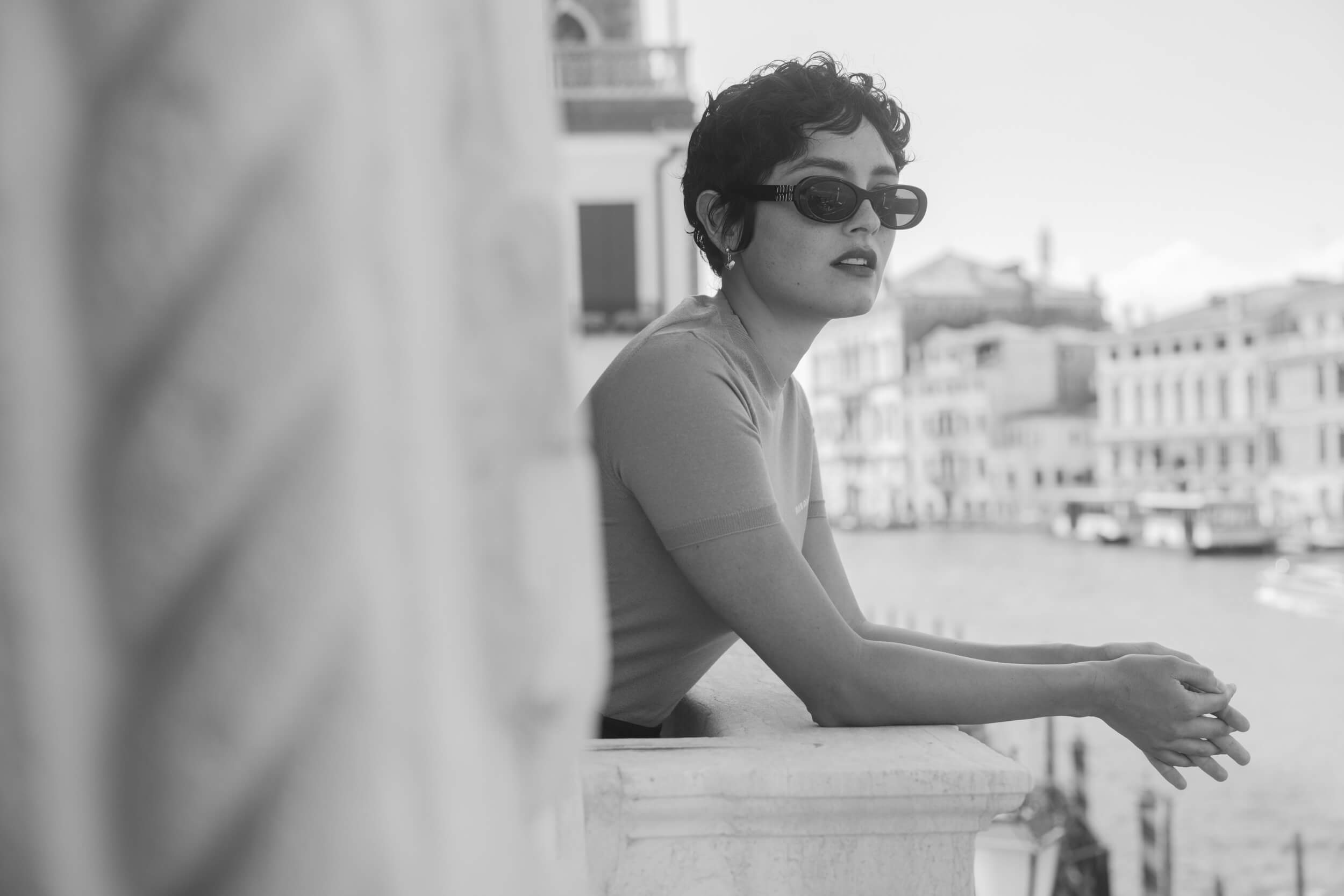
How do you find inspiration? Do you have a method, like isolating yourself when you’re writing? I mean, you live in New York, so I think it can feel too much sometimes. I’ve lived in New York, and I felt like that sometimes.
Yeah, New York is very chaotic, which is also partially what I like about it.
For writing, especially because there are people from all different walks of life, it’s not like a one-industry town – you can draw inspiration from so many different people. I’m particularly fascinated by the characters on the fringes of society. New York has a lot of wackos and enduring people with all different kinds of stories, so I do like living in New York, writing here, and using it as my basis, but in terms of inspiration, all the things that I’m writing stem from a very personal point of view, loosely based on different chapters in my life.
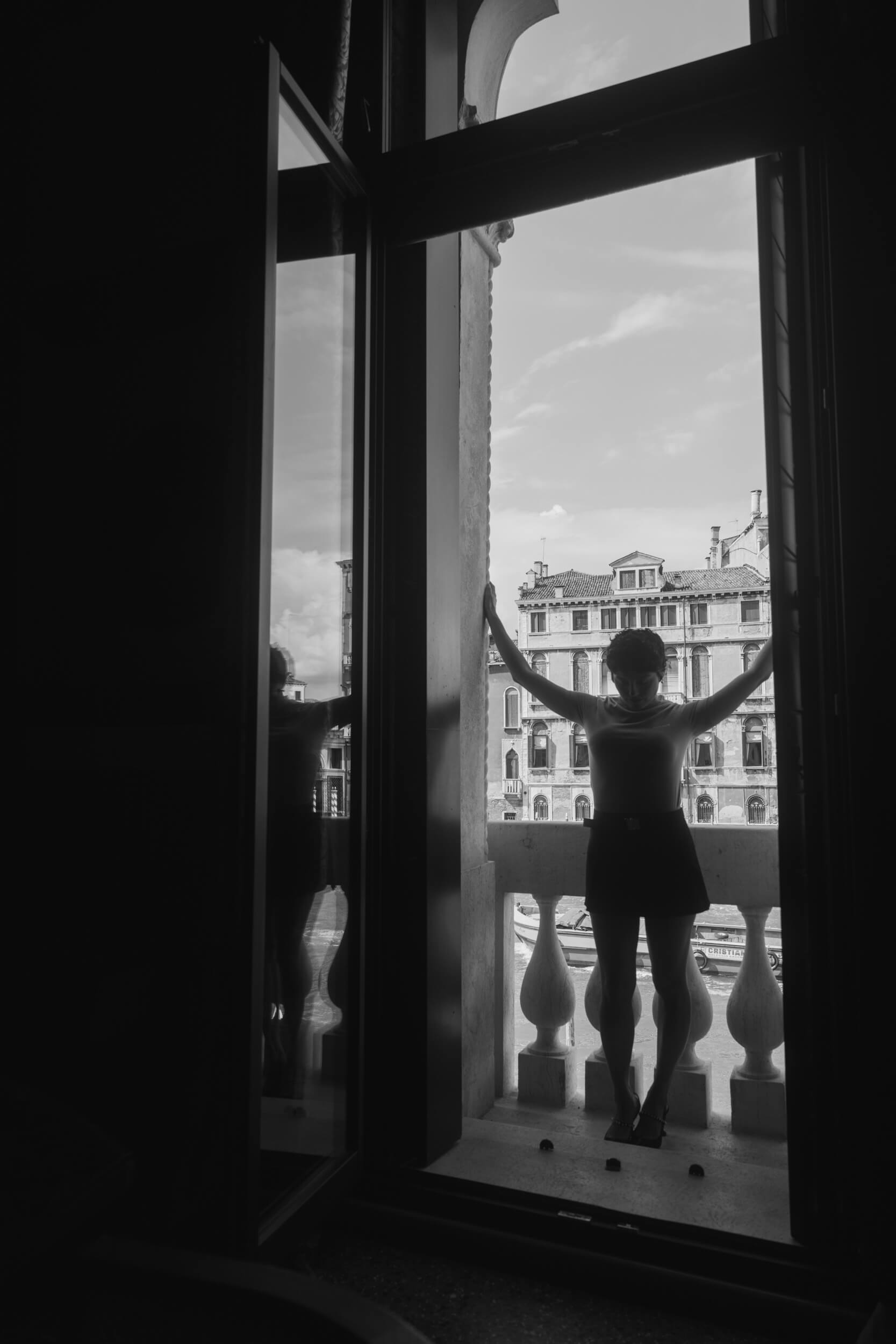
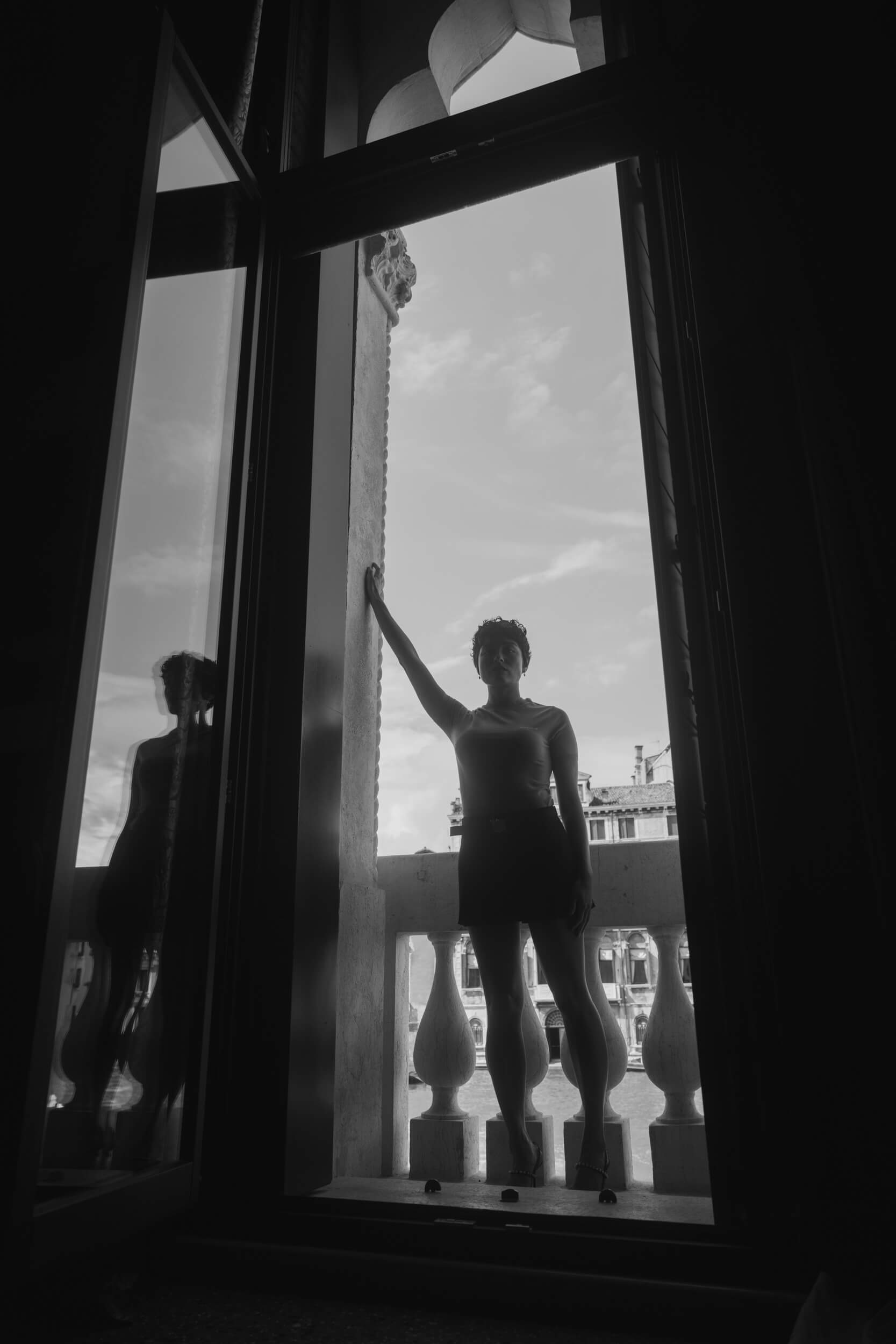
To what extent is cinema a form of escapism for you?
I think it flows in and out of being “escapism” because sometimes it feels so real and true to life. I remember I watched “Poor Things” and cried for an hour in the middle of the movie! Everything that was being said, I felt like it was hitting me right to my core. I didn’t know what was happening, but in that case, it didn’t feel like escapism, it felt like life, it felt like I was diving into my private diary. I think there are times when it can pull you out of a funk or it can pull you into confronting something real in your life. Fantasy and comedy can certainly be forms of escapism, but I do think the best things have something really real that is grounded in reality and it’s not a version of running away from it.
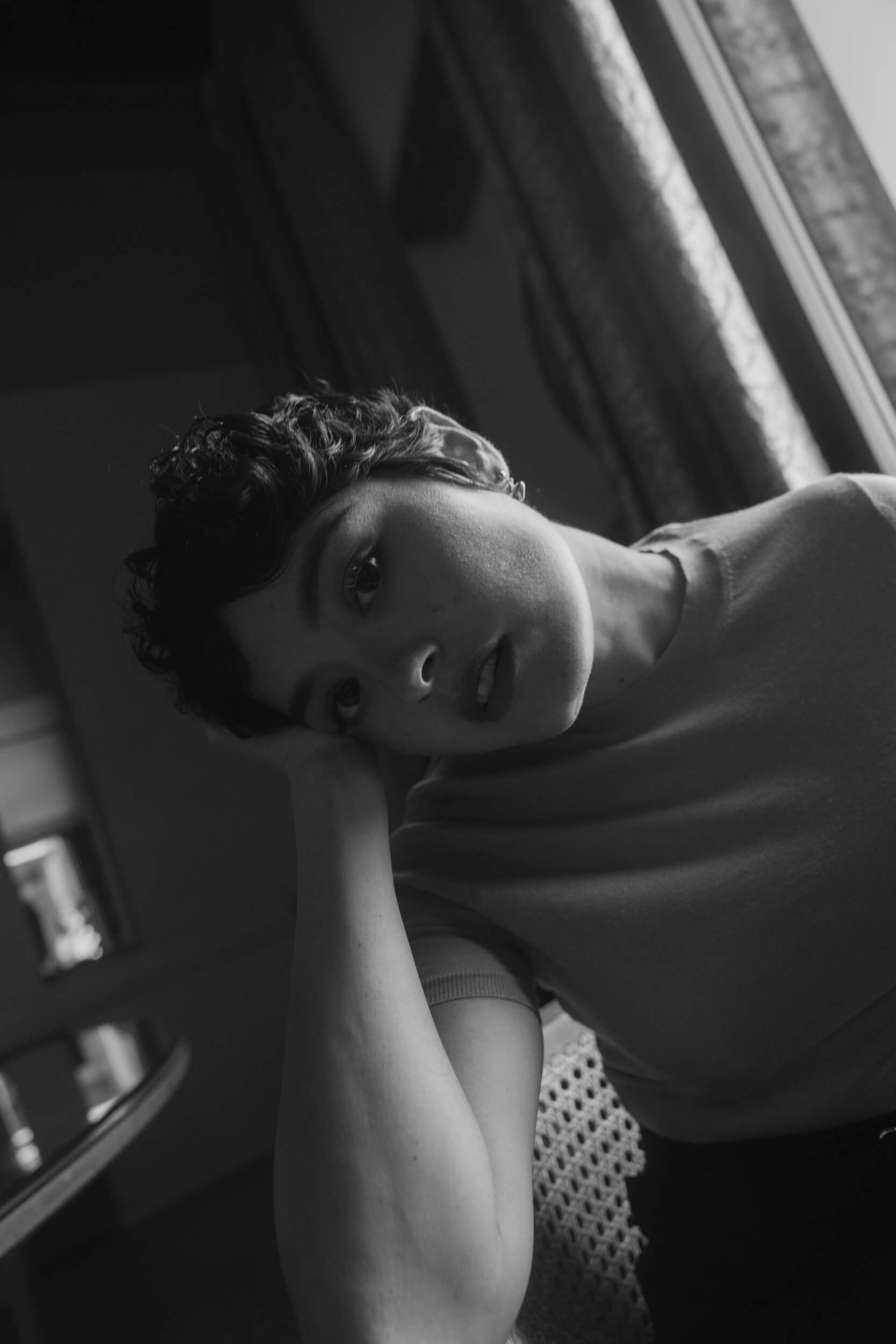
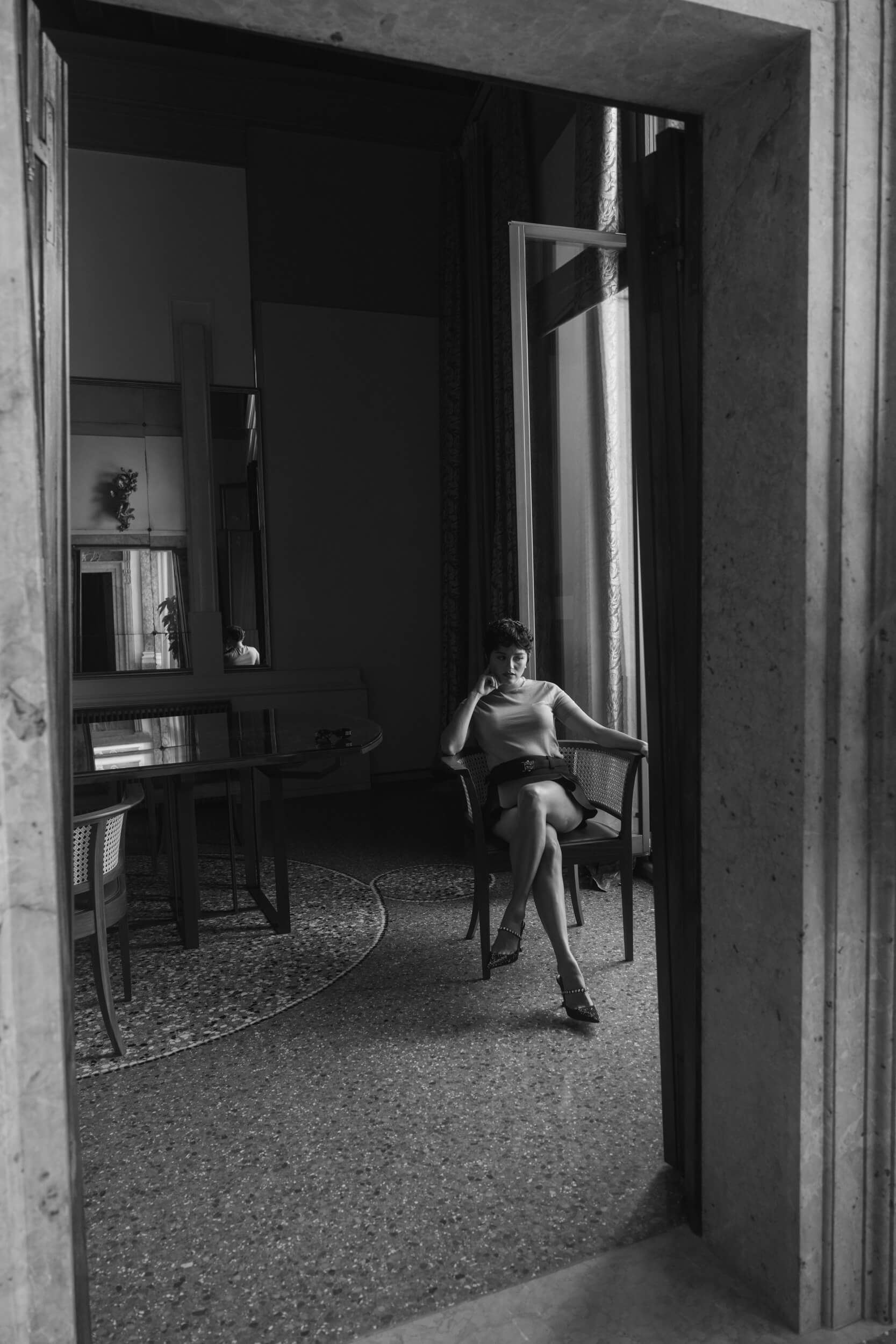
“It felt like life”
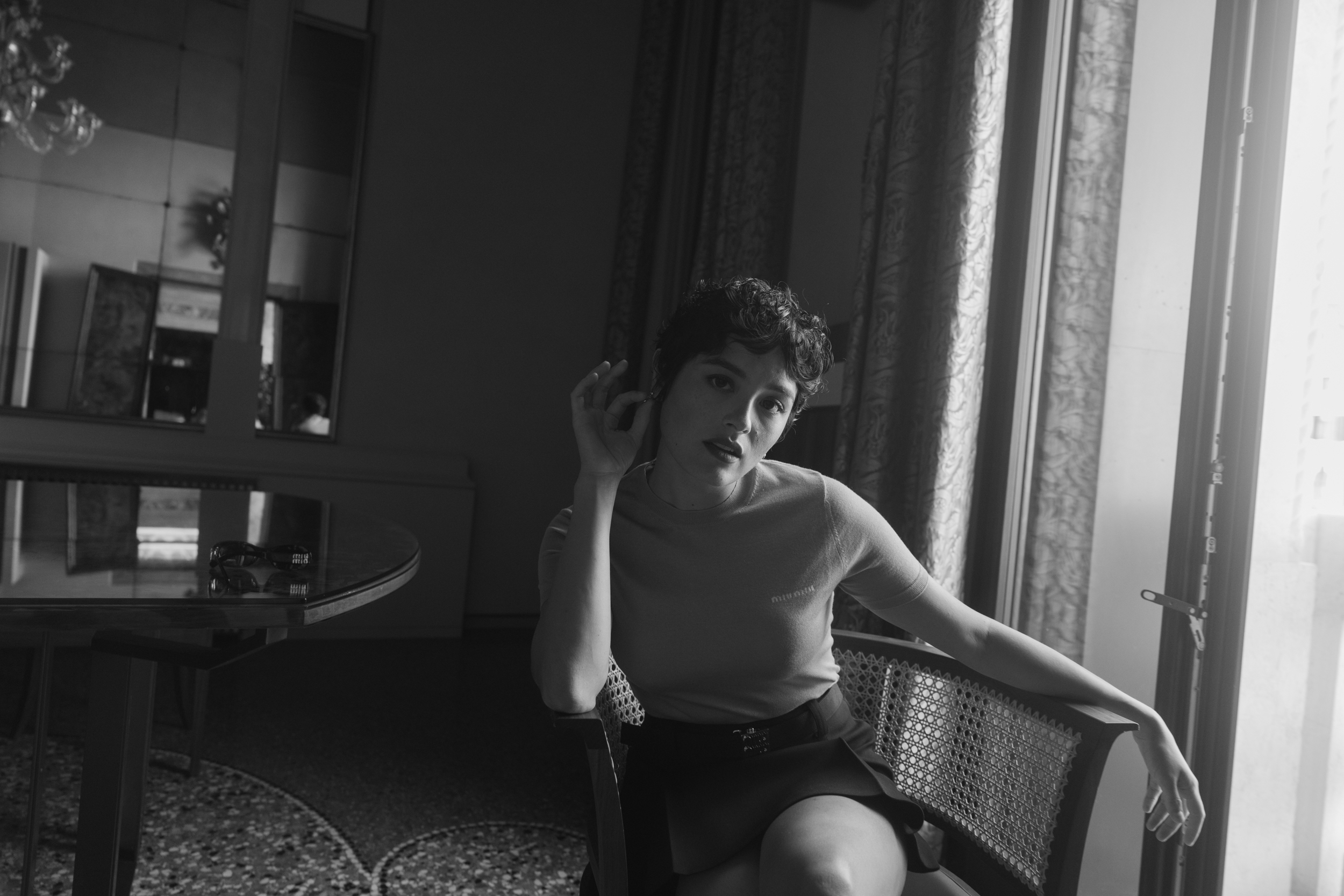
You wrote and directed the short film “Wake” that for me, from what I perceived, talks also about being stuck in life. Have you ever felt stuck or trapped in something?
Absolutely, all the time. “Wake” was a really special project, we made it in a day and a half and everyone was super committed. I grew up in the suburbs of Detroit, which is a sort of bubble of American suburbia – it’s very monotonous, and everyone has similar goals, wants, and ambitions. For me, there was a serious sense of: “I’ve got to get out of here”.
It drove me forward; it gave me a lot of ambition.
So, that feeling of being stuck started in my childhood: I didn’t speak for the first 10 years of my life, I was very shy, and I couldn’t socialize with people. In various chapters of my life, I’ve felt really stuck: I’ve felt stuck in relationships, in friendships. I think it’s a natural human state of growing and changing and shedding layers, and it happens to be a natural narrative arch: “You feel stuck somewhere? How do you get out of there?”. It’s the basis of a lot of great movies.
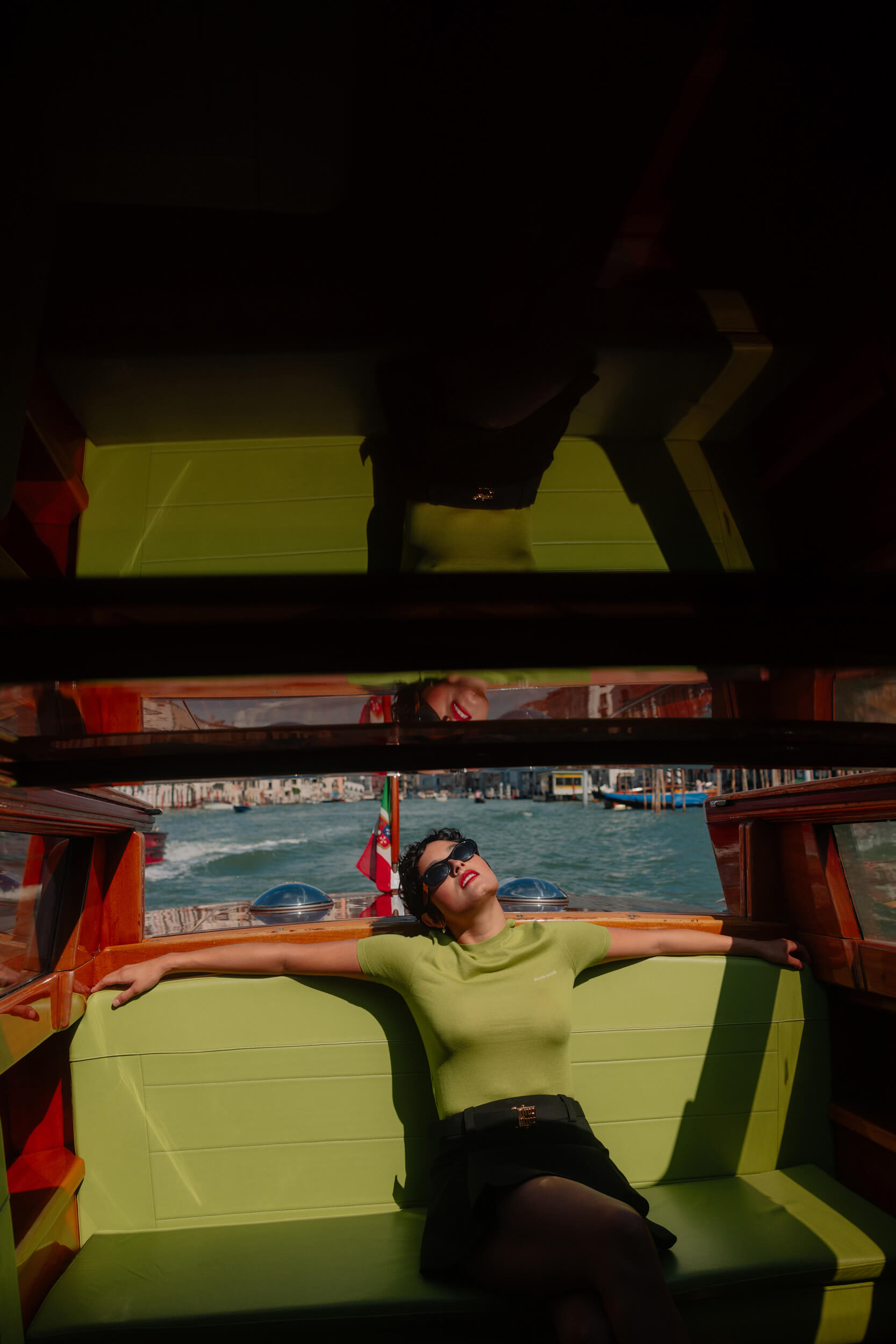
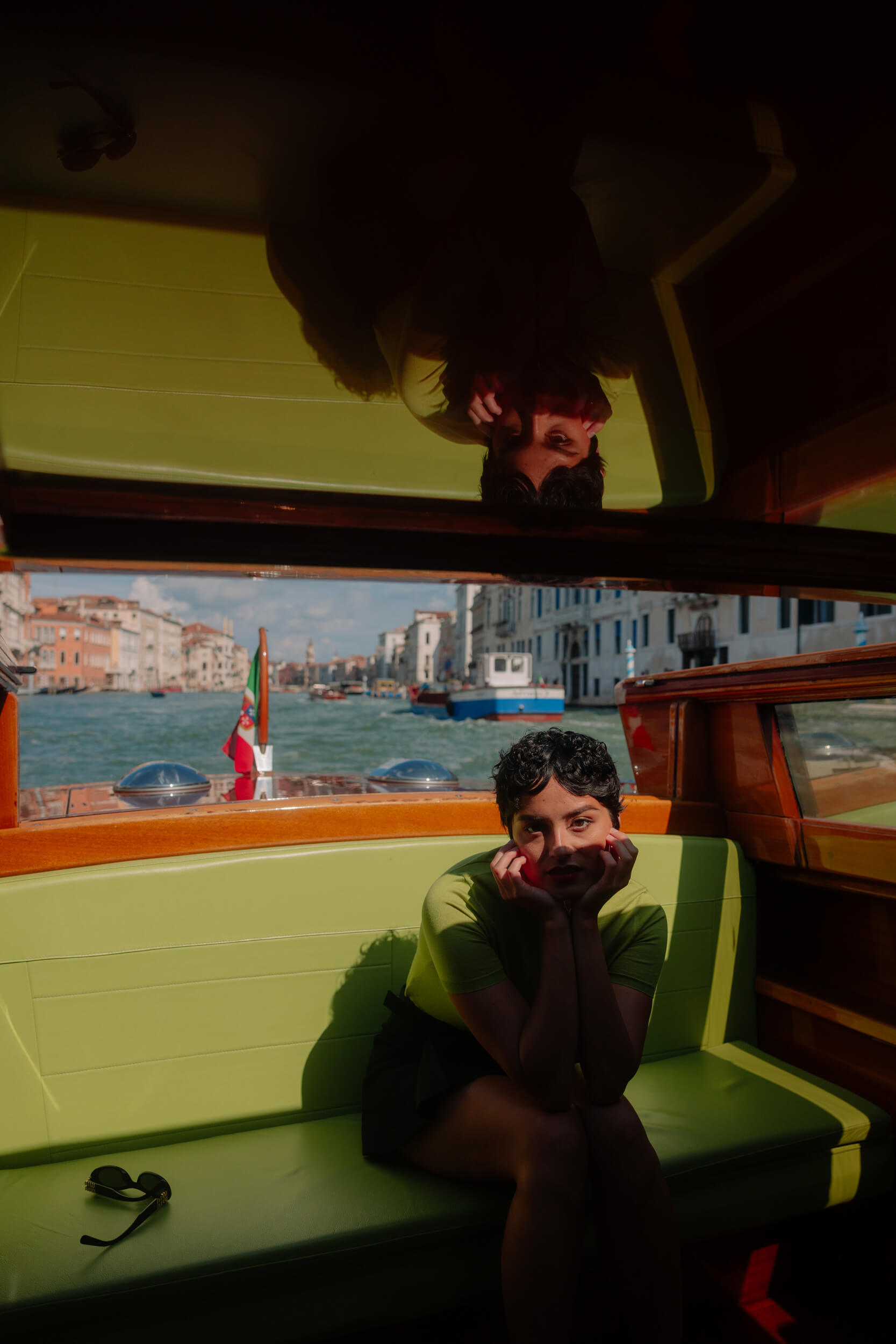
As we said earlier, you also did the short movie “Moon Lake”, that talks about growing up and the things you would like to hide while doing it. Growing up, was there an aspect of yourself that was difficult for you to accept? How did you cope with that?
Yeah. Jeannie’s film really hits home, obviously, because we filmed it at my grandma’s house, my little sister is in it, and it’s set in the suburbs of Michigan.
I think being a girl is confusing and crazy, as your body changes it’s so foreign. As far as I’m concerned, being Asian, the community I grew up in was really “white”, and I grew up with a single mom, who is white, so I felt like I was a white person, and it took me a while to accept or just come to terms with the fact that I don’t look like everyone else and that’s not bad. That was a journey of my youth.
Also, being really shy, I didn’t like that about myself, but I also felt like it was so embarrassing to open up my mouth and talk to other kids. Then, I liked movies and theater, but the community I was in was very sporty, and I loved playing sports, but I would run away from hockey practice to go to theater rehearsals, and the sporty girls would judge me for that and the theater kids would judge me for going to hockey practice… Being a kid is so confusing, kids are so brutal and mean, and they tell it like it is, and everyone can relate to feeling judged.
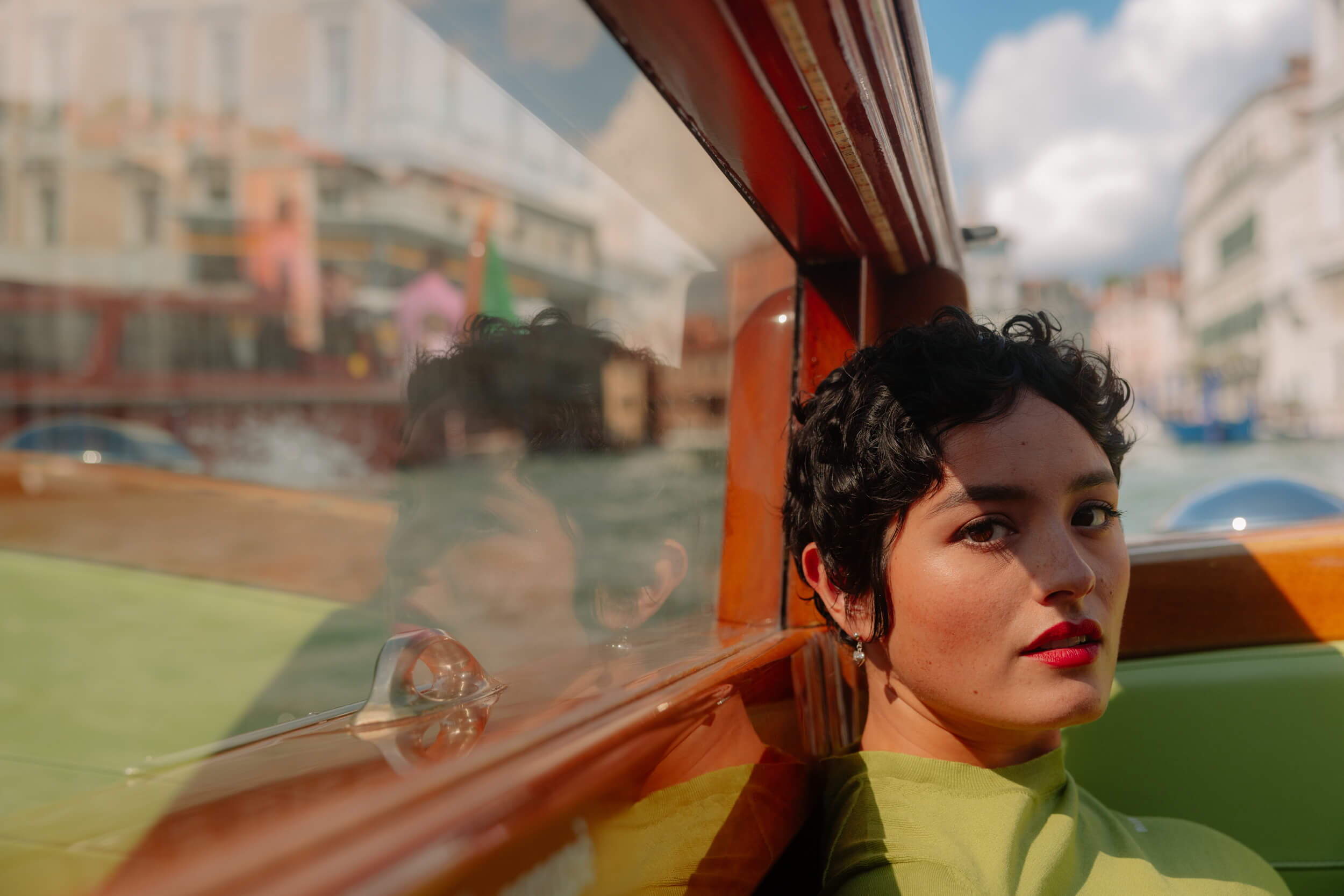
“It took me a while to accept or just come to terms with the fact that I don’t look like everyone else and that’s not bad.”
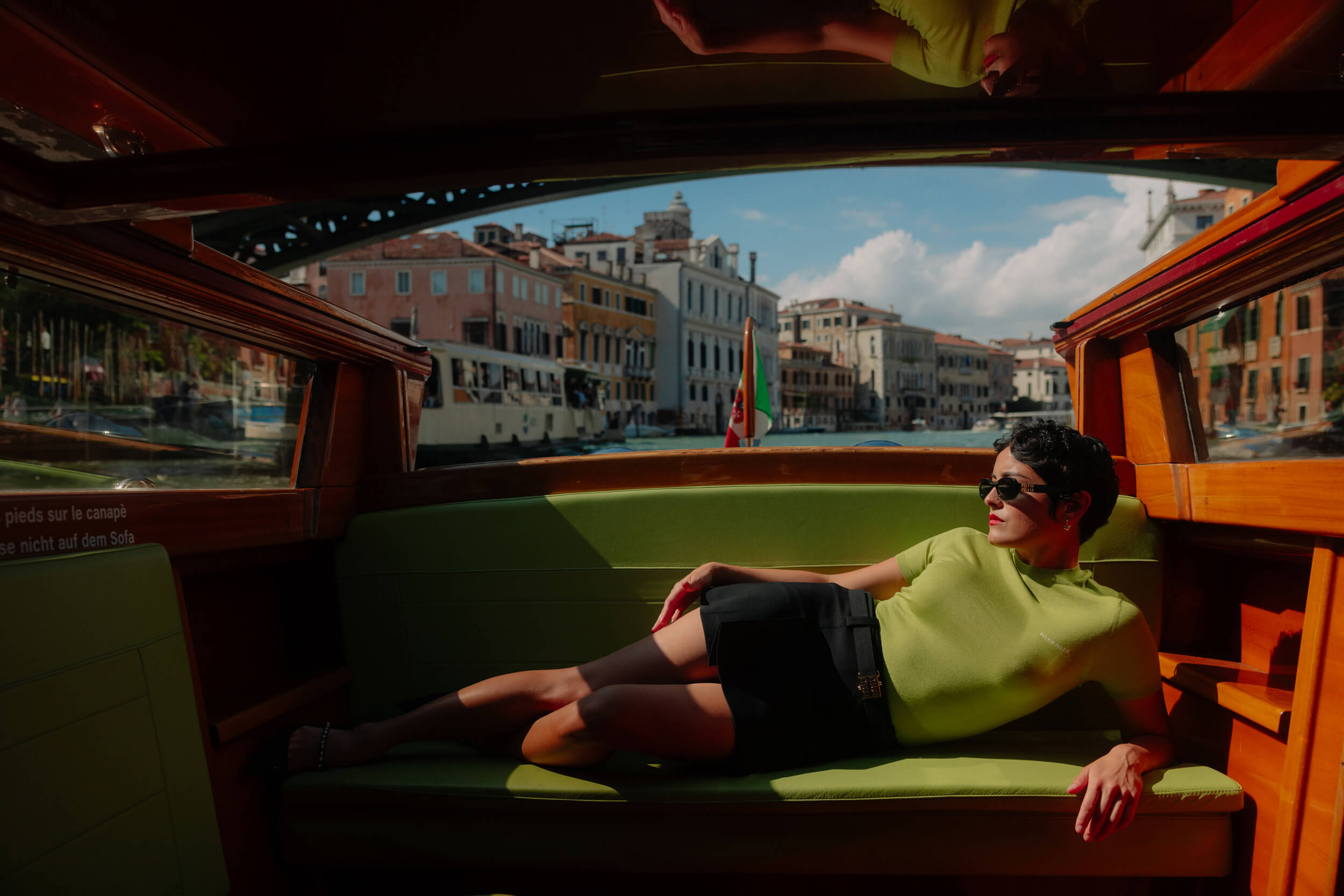
I think the short movie format could be very difficult to make because you have to deliver so many things in just 20 minutes or so. What’s the most difficult thing for you and the most satisfying about the making of it?
The most difficult thing is getting the story to the place where you care about the characters because you don’t have the luxury of a ton of time, so you need a real, clear beginning/middle/end, I think.
You need to get the audience invested in quickly and soon. That’s its challenge, and I think it’s really hard to crack. You know, a short film is less daunting than a full movie, so it can happen really fast. Our shoot for “Moon Lake” was maybe three or four days, the shoot I did for “Wake” was one and a half days, so you get people and you immediately have to be in the trenches with them or else the whole thing falls apart. So, the most satisfying thing about a short is that it’s a testament to people committing quickly and deeply, and then going back to their lives after a real deep dive. That part is really fun.
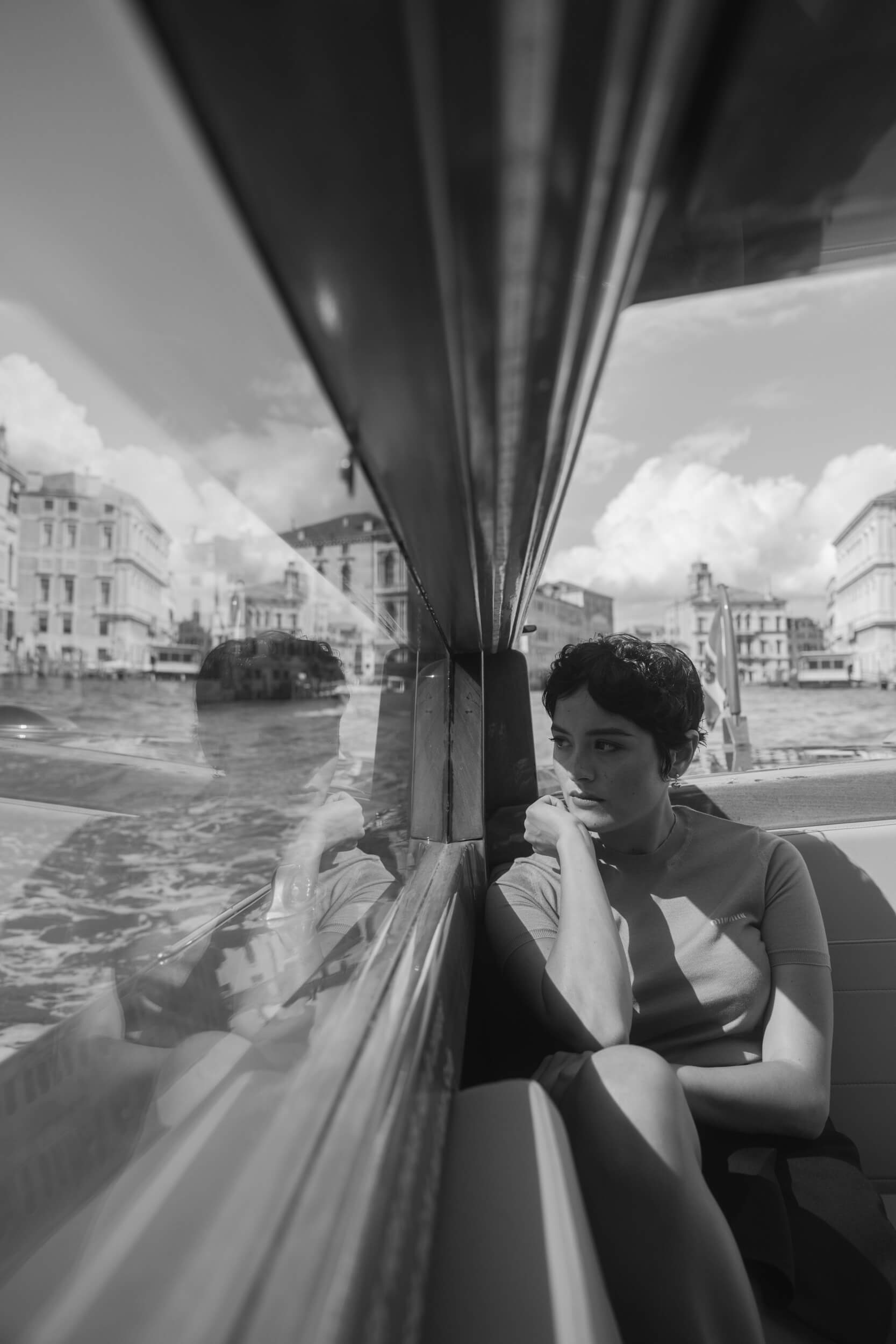
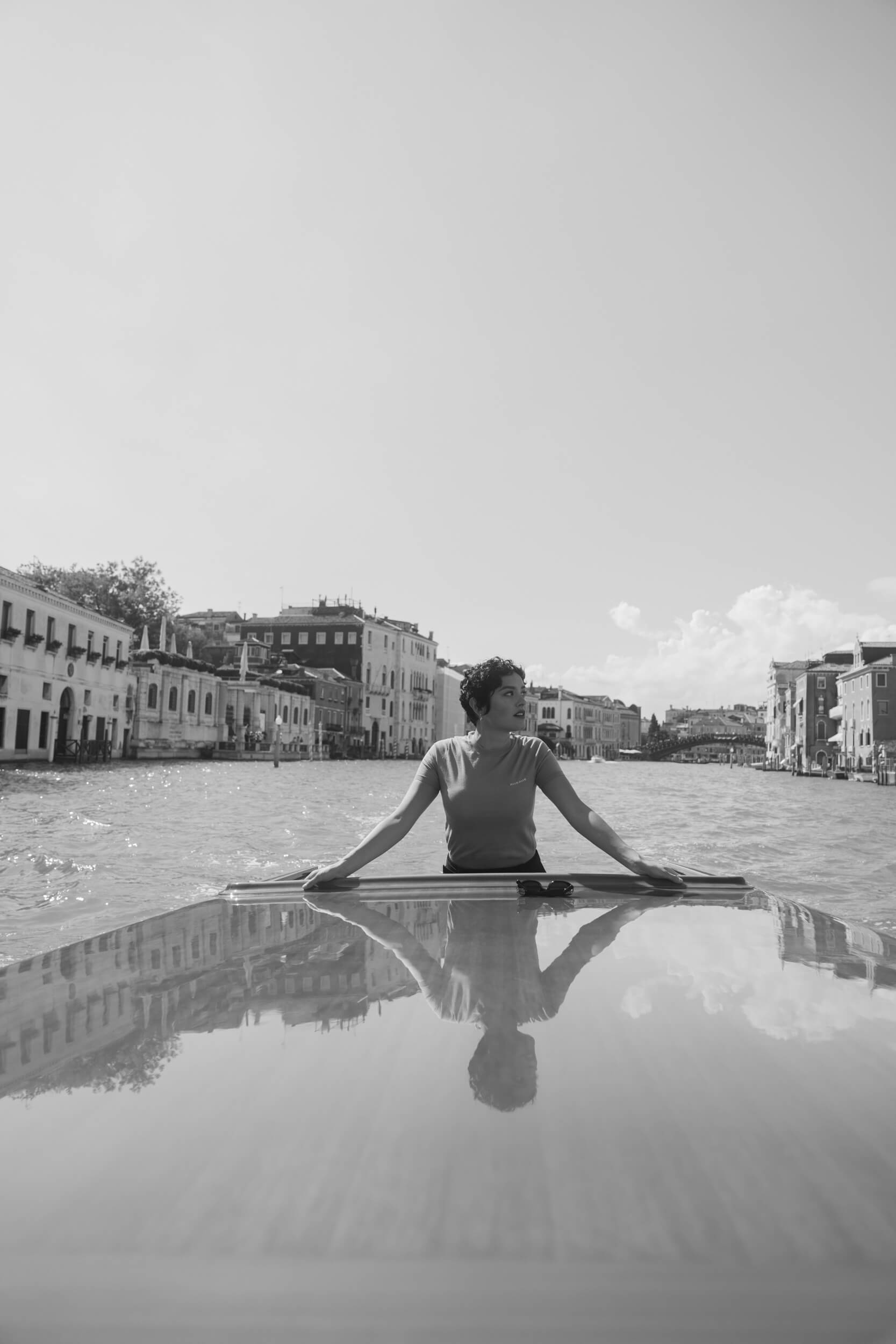
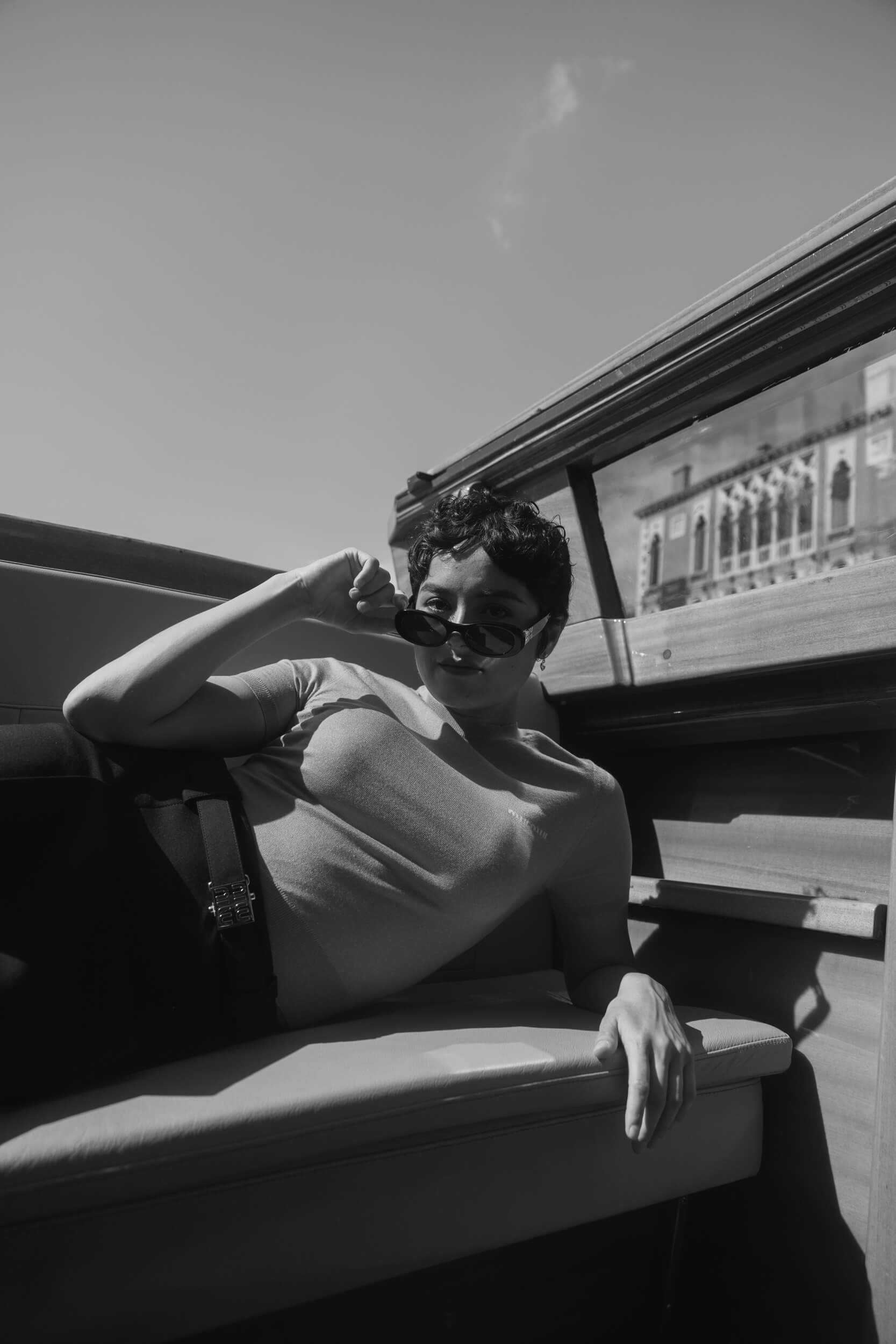
When I watched “Wake”, I really wished it was a long feature film. I was imagining what could have happened in the past and made a movie in my mind!
That’s great, I’m so glad, it’s really awesome that you had that response! Part of the intention with that film is that there’s so much backstory to this group of people; I didn’t think about the feature version, but I do think it’s like a pressurized container that’s jammed-packed with so many different storylines and so much baggage and history. Maybe there’s a feature, somewhere… That would be fun!
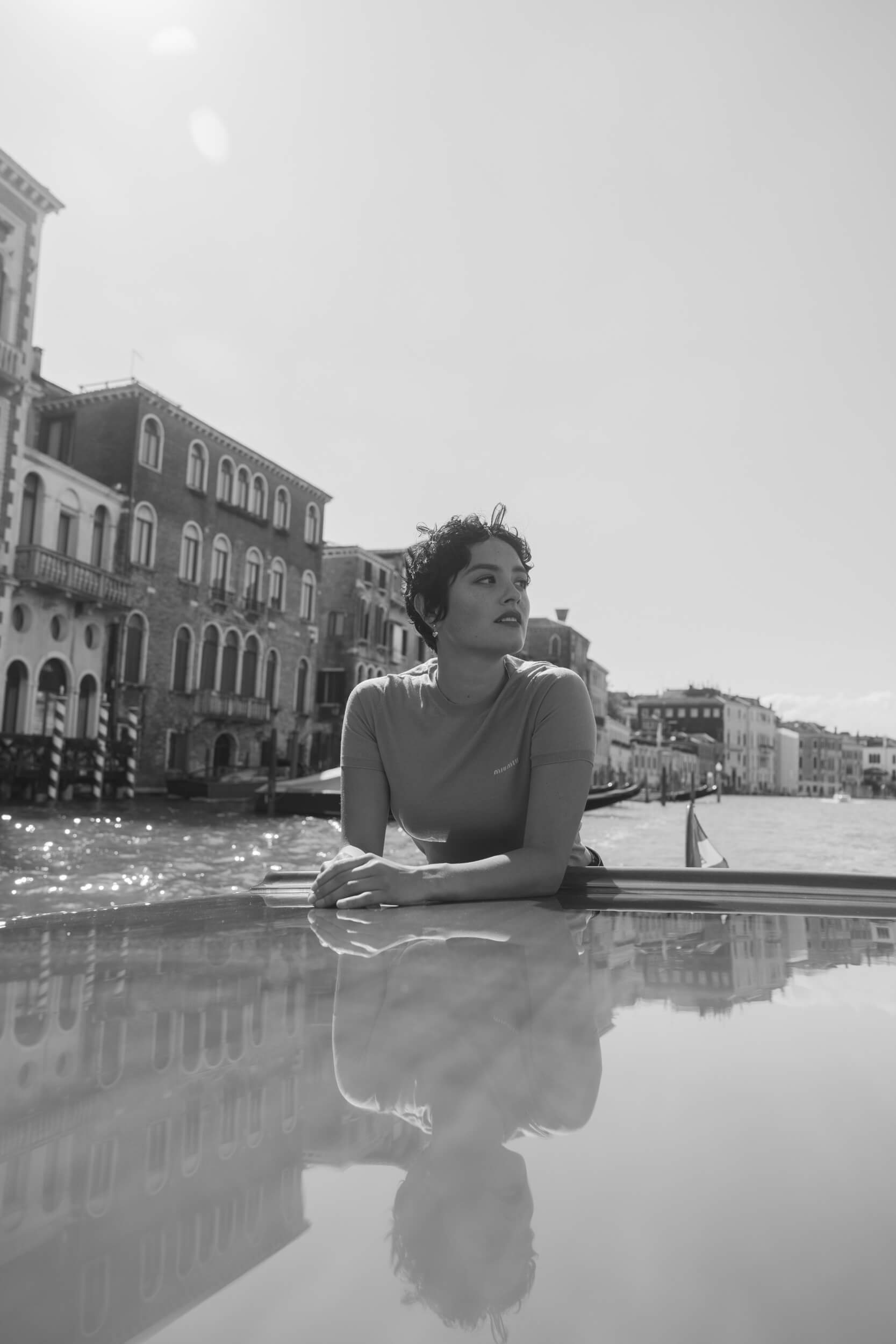
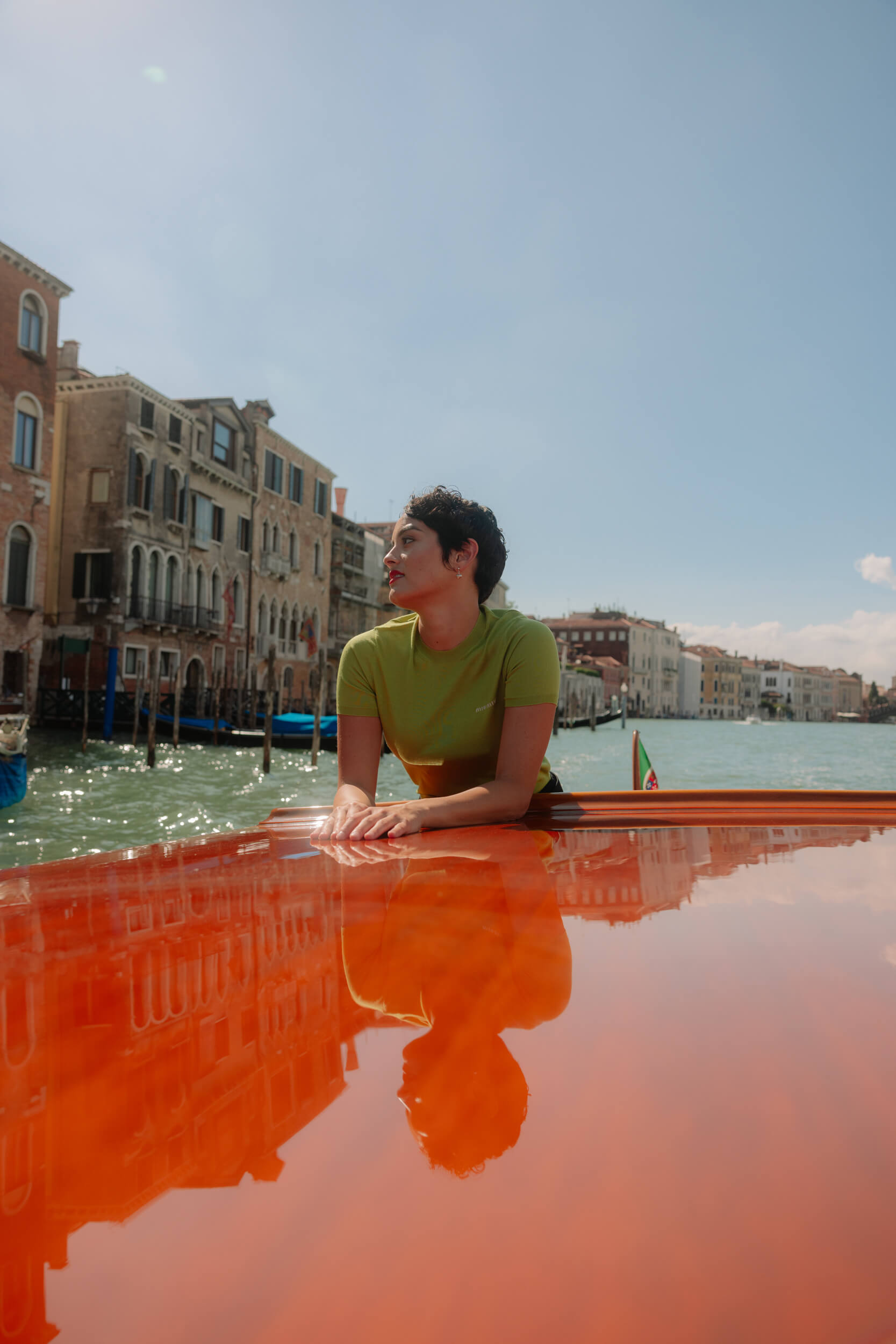
The world of cinema and art in general are linked under several aspects to the world of mental health. Is there anything you keep witnessing that bothers you or that you would like to change?
I think there are so many different versions of mental health. Nobody’s mental health story and approach are the same, so I think there’s room for a lot of different kinds of storytelling within that. I’ve played characters with severe mental health issues, and it’s a really hard and important work, but sometimes that’s what connects the most with people.
I’m continuing to tell specific stories while being really cognizant not to glorify mental health. That’s one thing I will take issue with when it comes to the portrayal of it, never glorifying being mentally ill because I think it’s not something to be ashamed of but it’s also not something to put on a pedestal. It’s an affliction and it’s an illness and it should be taken seriously. We never want to have a young kid think of mental health as something that’s sexy, for example, because of a movie or a show or an actress they saw portrayed that way.
I never thought about that in those terms, so what you said is very interesting. I’ve always thought that it’s important to talk about it and have a conversation about it, but sometimes, maybe also for younger generations, to see more and more stories with a mental health focus and glorifying it could be really confusing.
Yes. When it’s done with authenticity, it’s really important. As long as authenticity is there, it’s pivotal.
“I’m continuing to tell specific stories while being really cognizant not to glorify mental health.”
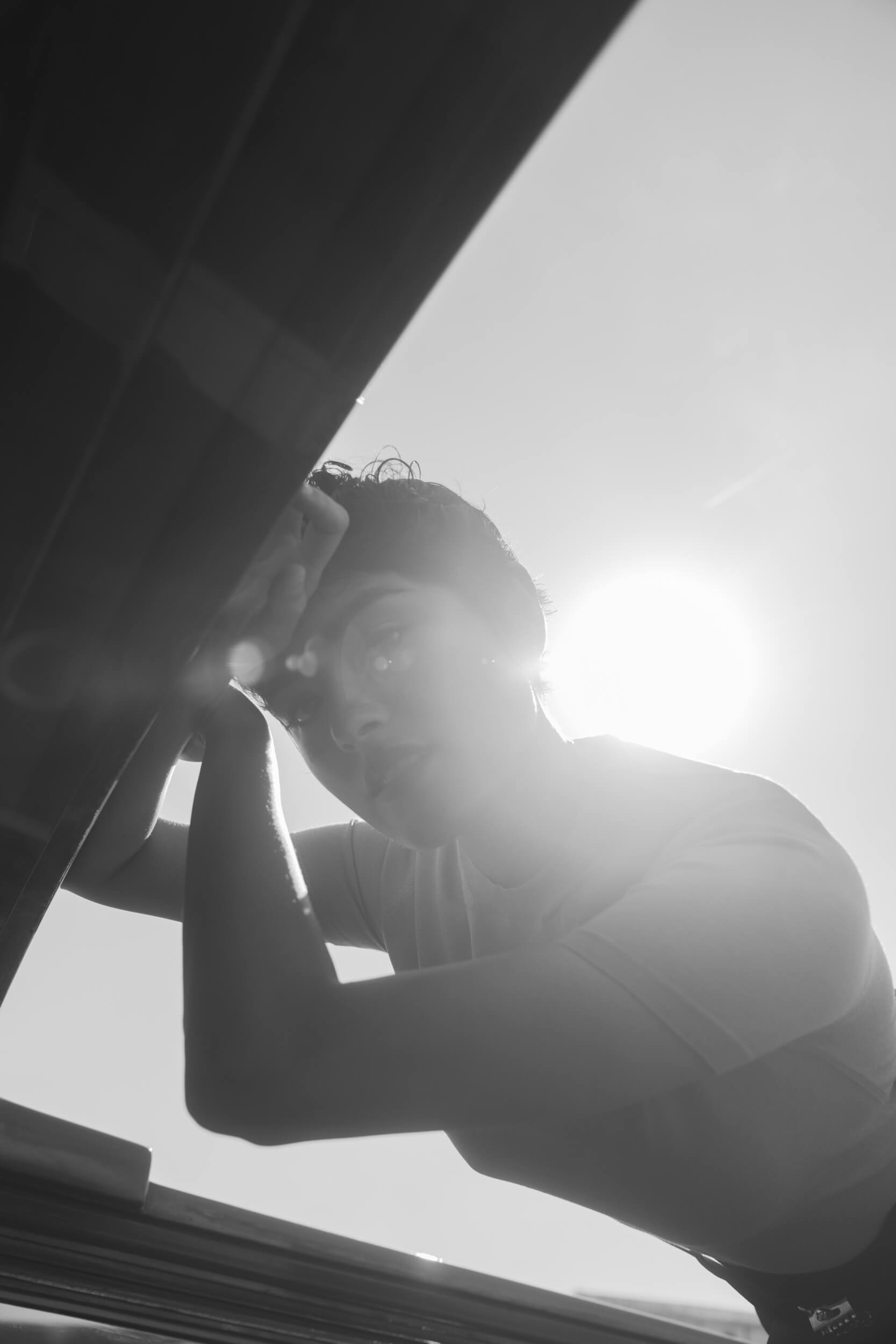
Writing, directing and playing different characters from time to time, you end up spending a lot of time with yourself, exploring your many sides, testing and getting to know yourself more and more. What’s the latest thing you’ve learned about yourself through your job?
That I can chameleon and transform in ways that I thought I couldn’t before.
I have some jobs coming up through this year that are really different characters that I’ve never played before; these are two jobs that I’m doing back-to-back and they’re absolute opposite ends of the spectrum of womanhood, two very different types of women. So, I think I’ve learned that I can play lots of different types of characters, while before I was limited in terms of what I thought I could play, or the “industry”, or the casting directors who had different ideas of what I could play, and they assumed that I could do this one thing. This past year, I’ve been finding out that I can play some different kinds of ladies!
Is there a movie or TV show that you’ve recently watched and stayed with you?
Absolutely! I watched a movie called “Nowhere” by Gregg Araki that was really good. He’s one of the fathers of queer independent cinema and has a real vision and humor that is wry and dark but also delicious and fun to watch. That really stuck with me, and a lot of amazing actors that you know got their start in his movies. That’s one I’ve been really thinking about a lot.
Then, “La Ciénaga” by Lucrecia Martel is a movie that I rewatch all the time; I was rewatching it last night and it’s so good, I recommend it. She’s incredible and her soundscapes are so rich and so funny and she’s so fixated on really specific weird characters and their idiosyncrasies.
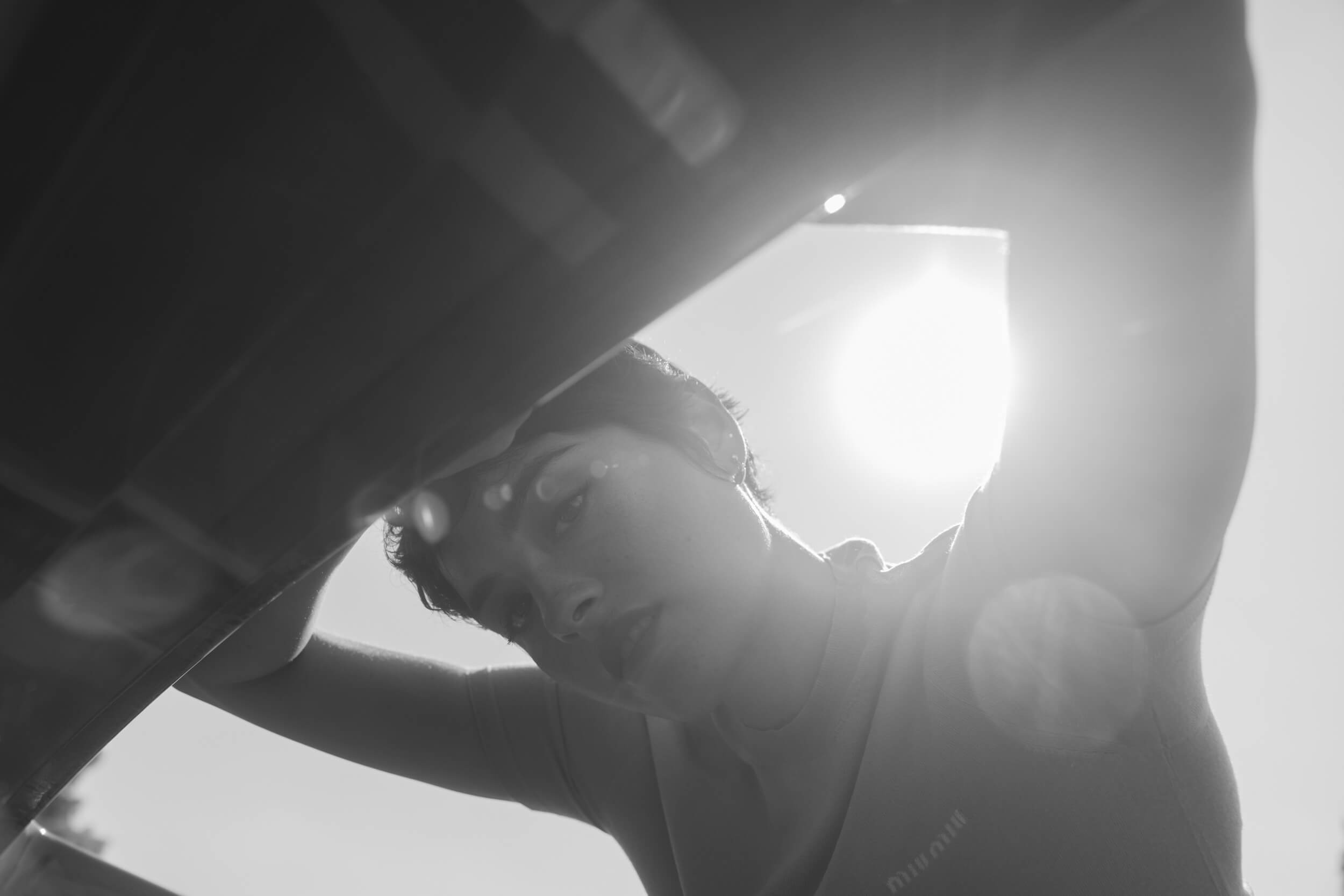
Your greatest act of rebellion?
Probably pursuing a career in acting and entertainment in general. Coming from the suburbs, I was not exposed to this sort of thing at all.
When I was young, it was sure in my head that I was going to go into finance because that’s what everyone around me was doing, like some sort of corporate job. Up until the end of college, I was going to sell out and be a corporate drone, so I think committing to acting and not giving up on that was pretty punk of me. I’m not a big rebel, I’m a pretty tamed lady, I would say, in terms of partying and all that stuff, I’m a home body.
Same for me, I feel you. Speaking of which, what does it mean to you to feel comfortable in your skin?
It’s an ongoing process, I think it’s kind of growing up.
I’ve had a couple of big cannonballs launched at me in my life and I’ve faced them head-on; just being able to get through hard moments in life and coming out the other side and being like, “Okay, I’m intact and I’m stronger than I was before”, I think that gives you a sense of self-confidence.
I don’t think it comes overnight, but the old cliché of how hardships make you stronger has been really formative for me in my life. Also, being able to do this job, auditioning for parts and getting them, and getting that “validation”, for lack of a better word, has made me think that I’m good at this, that I can do this, that there’s a place for me, and my weirdness, and idiosyncrasies somewhere in this world and business.
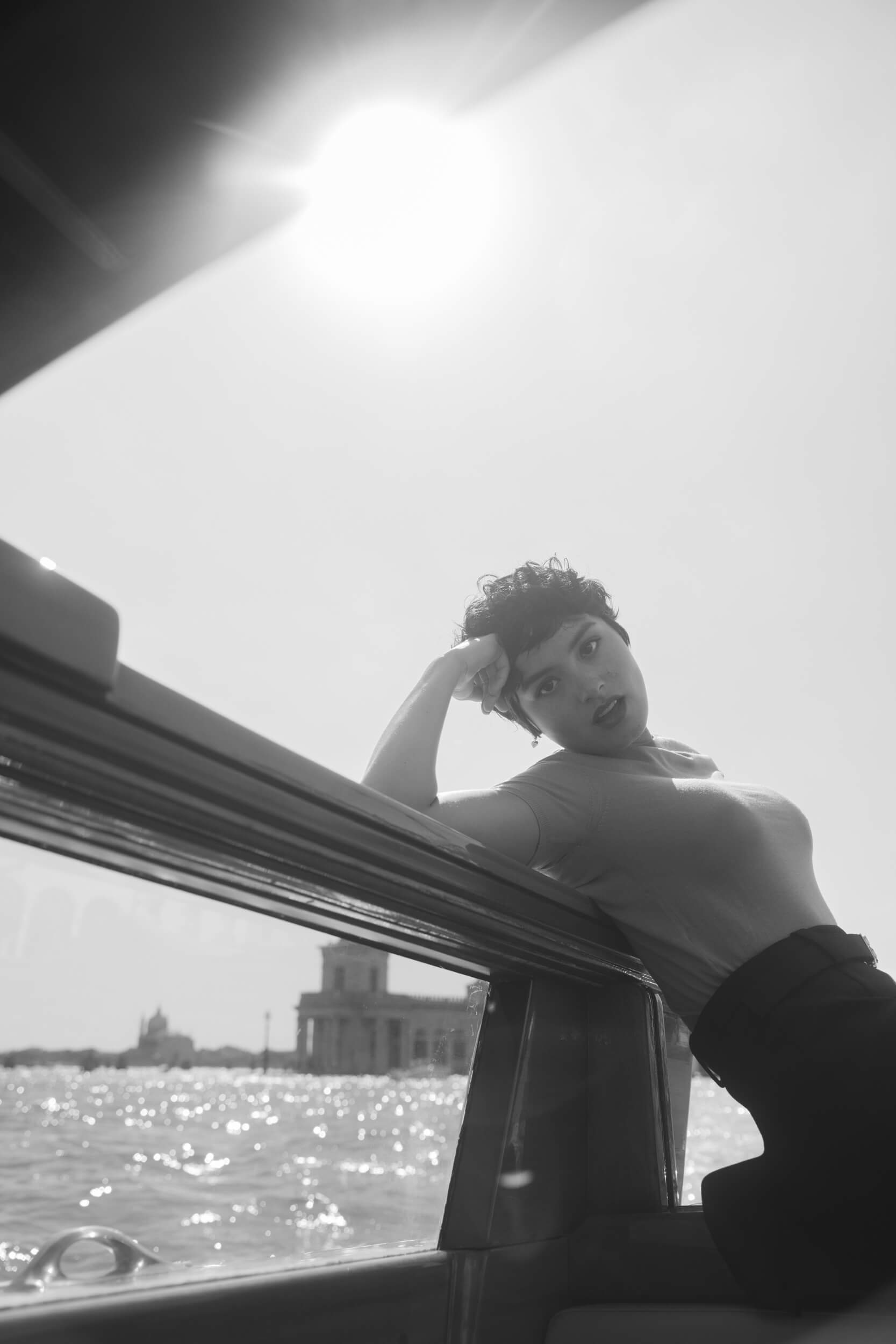
“I think committing to acting and not giving up on that was pretty punk of me”
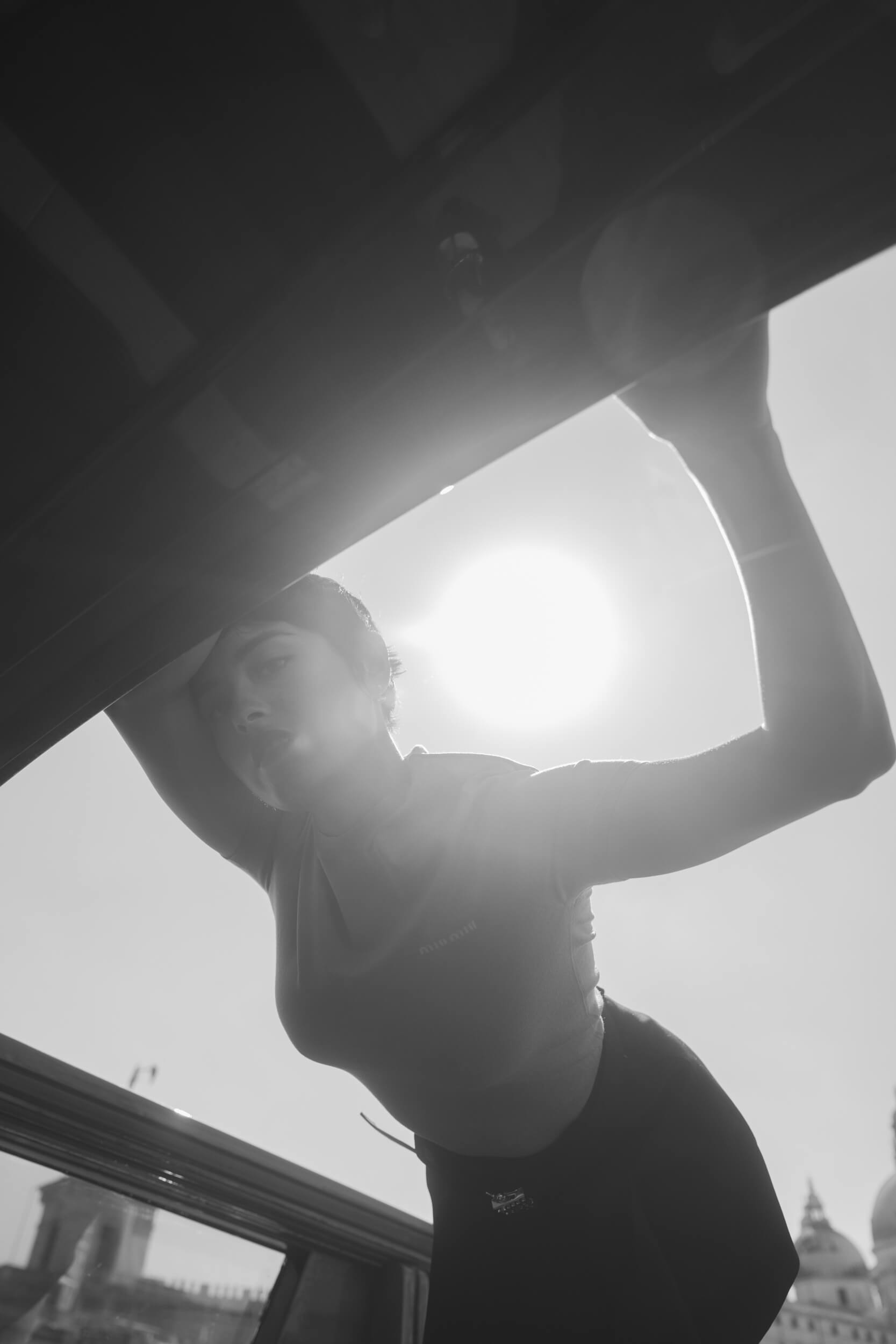
And what’s your happy place?
With my family. I have a big family and we’re all really close.
They’re amazing.
Right, you’ve met them! You met my mom – did she offer you pasta?
Yes, of course, three or four times…
[Laughs] You know, my mom is a legend, she raised me very well.
Just being with my family – I have five siblings, three nieces and nephews, and everyone being together is the best. We travel a lot together, we go home to Michigan a lot, and I’m the happiest there.
And on set. Being on a movie or TV set, with good people: there’s nothing like it, it’s really exciting.
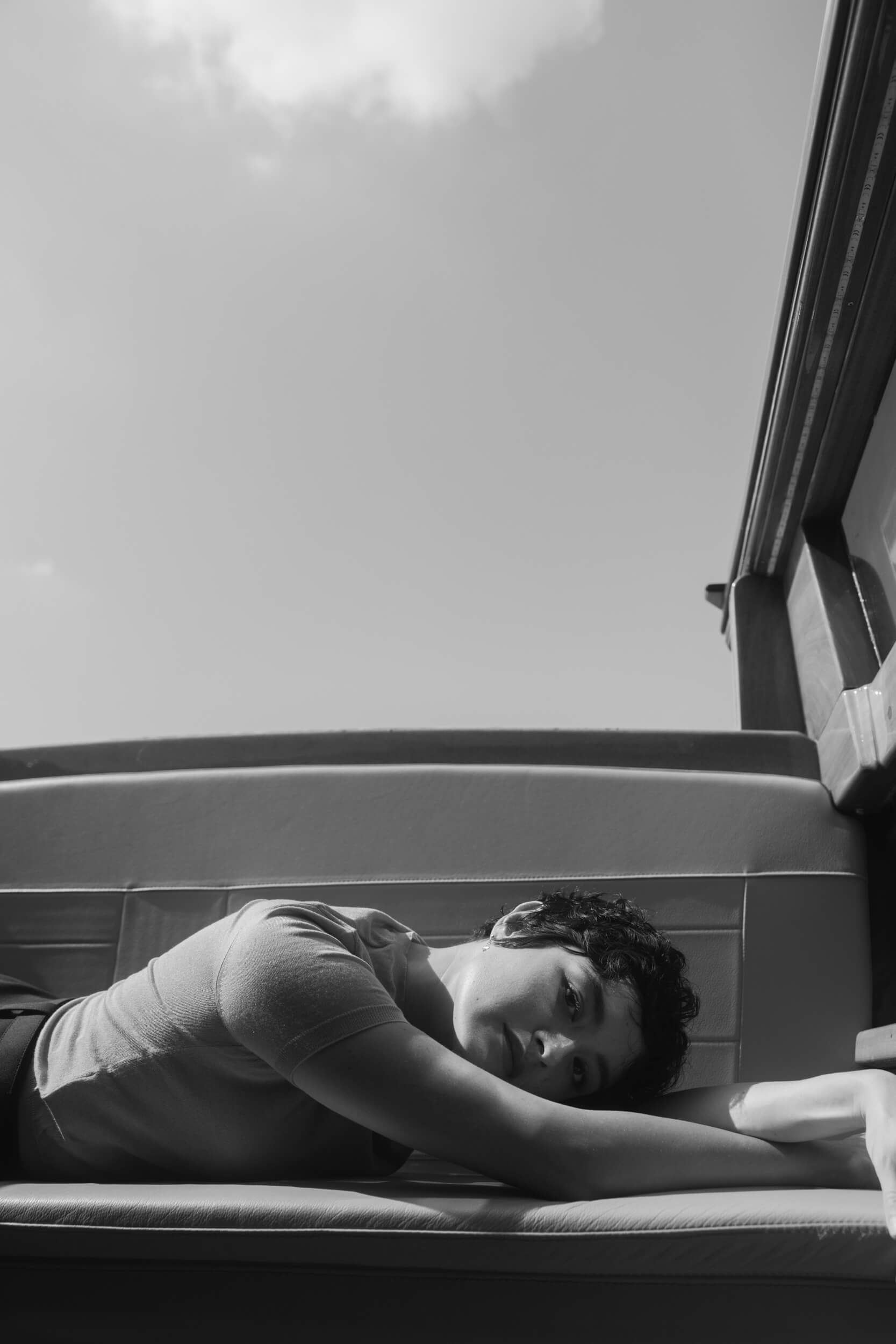
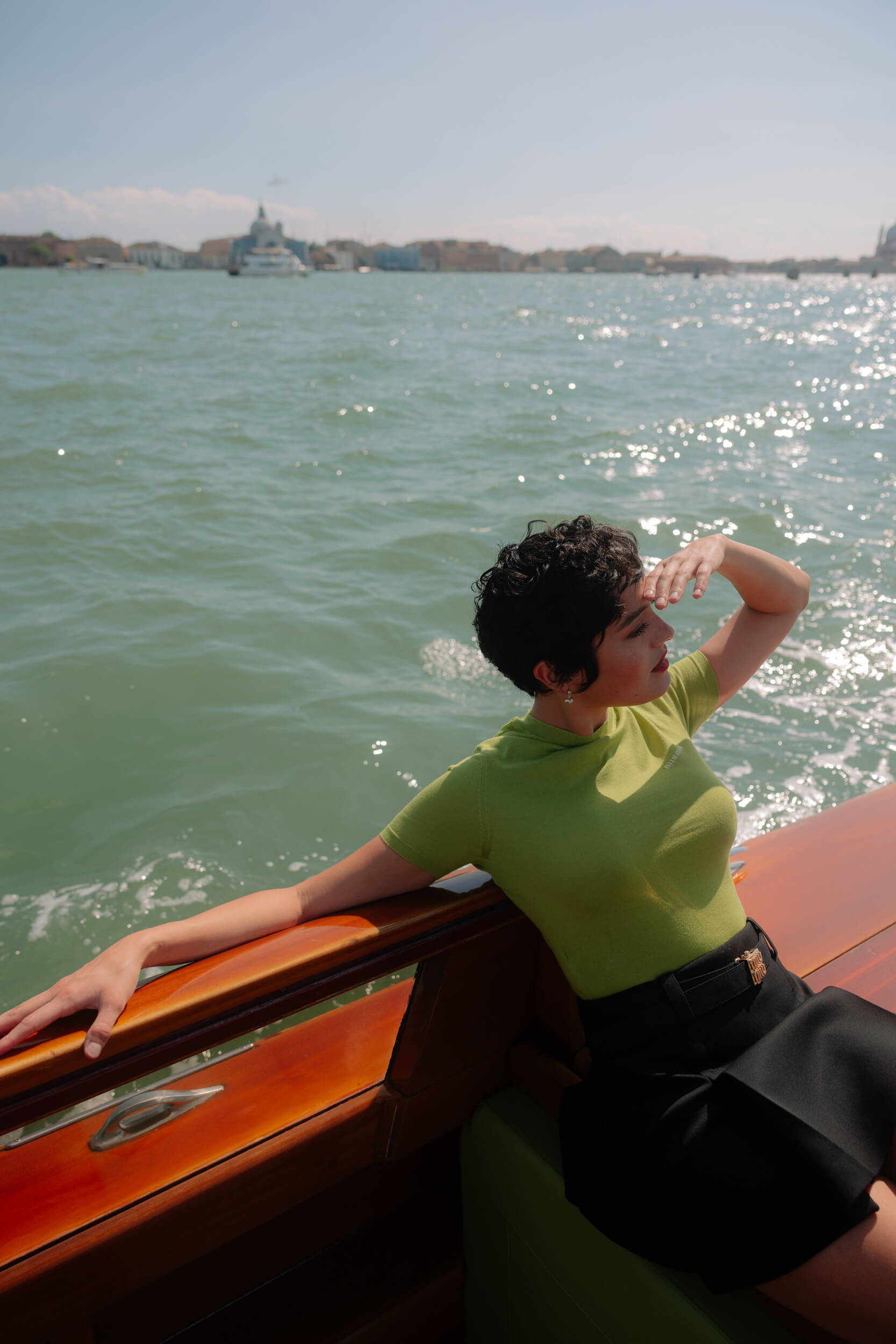
Is writing for you a happy place? I know about people who write but with a little bit of “sufferance”…
Yeah, I have different moments. Sometimes, I’ll write and I’ll be jumping off the walls, or I’ll be sitting down and stand up after 12 hours, so it’s a different kind of low. It can be grueling, but 50% of the time it’s the best thing, euphoria, it feels like something is channeling through you and you’ll be having an exorcism [laughs].
Yeah, I understand. I write, as well, as a job, but I’ve also been writing something of my own – I don’t know what it is, but I wrote it because something really sad happened in my life. Writing helped me so much because I think I was not healing in the right way, and I was connecting writing with suffering and sad things. But then a few months ago I started writing something fun, and thought, “So, I can write something that doesn’t make me cry!”.
Yes, that’s amazing! I know a lot of people say that you have to be suffering in order to create and that the best art comes from the people who are suffering the most – I guess that can be true, but if you’re a poet or something like that, maybe.
My favorite things have comedy and tragedy mixed into one thing.
The best thing is when one minute you’re laughing, and the next minute you’re crying, those are my favorite kinds of stuff. I think there’s room for both.
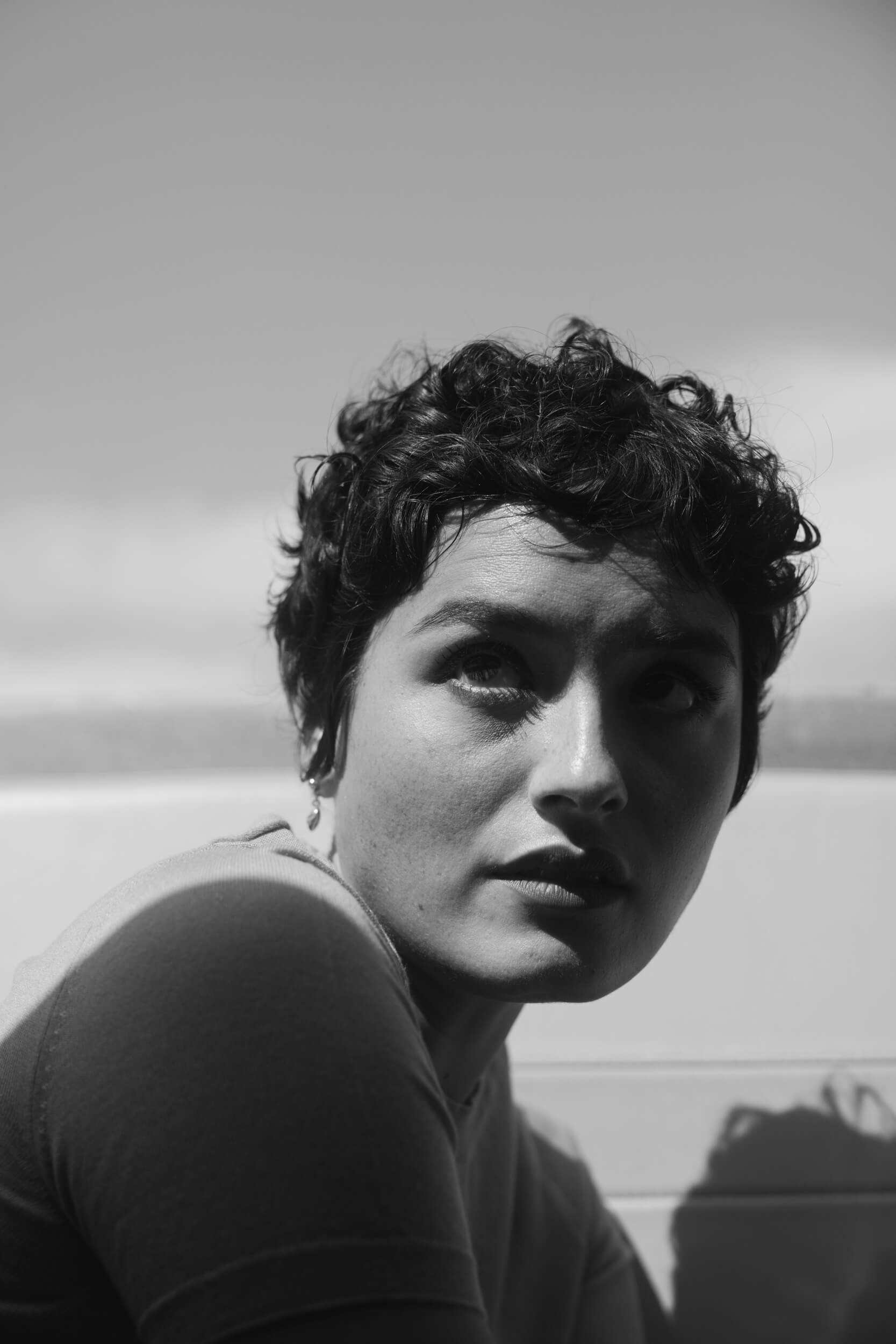
“it feels like something is channeling through you”
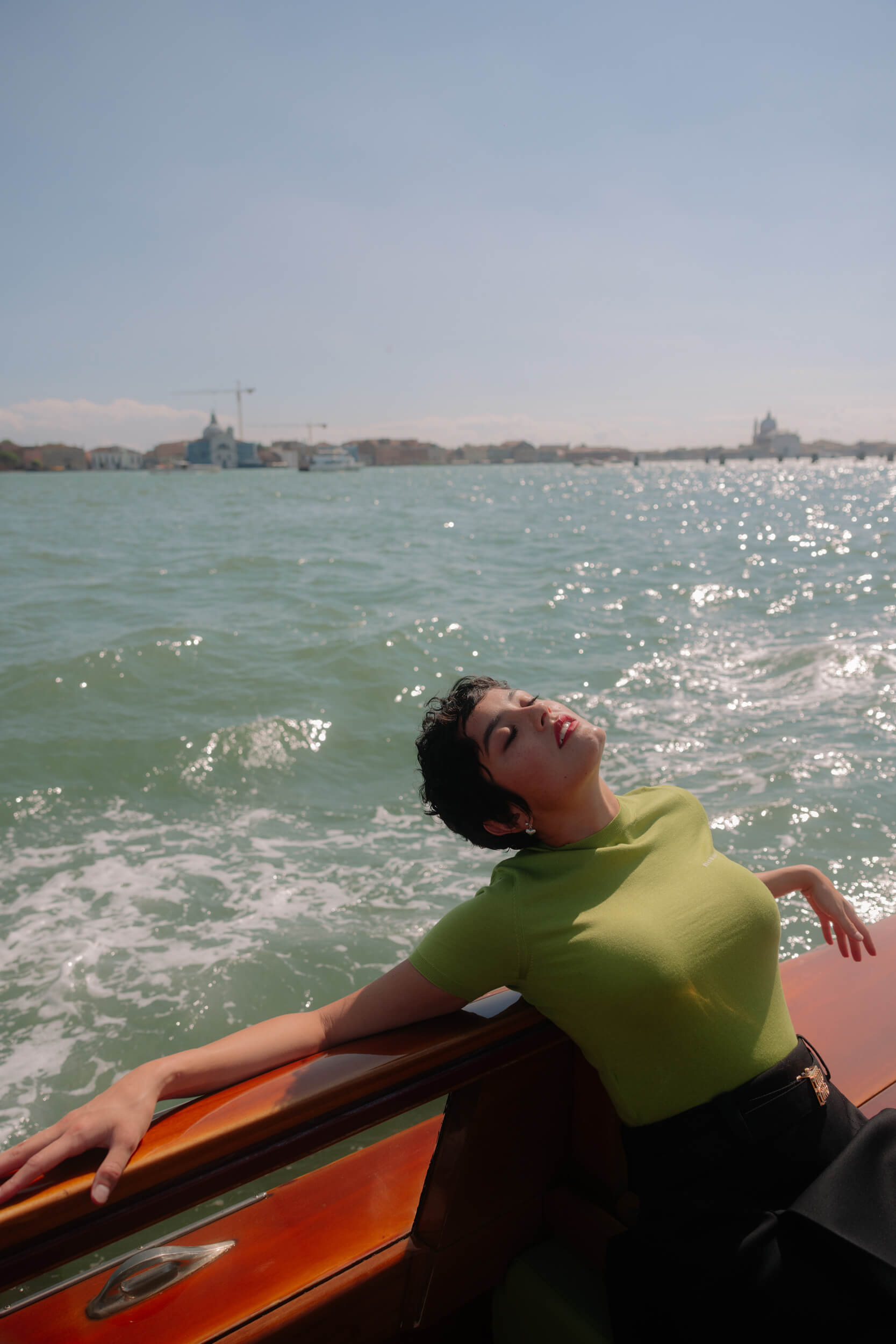
In the world we live in, where everything seems to move fast and sometimes there’s no ability to wait, do you feel capable of waiting?
This is a big lesson in my life, and I’m an impatient person – if I get an idea, I want it to happen now, if I make a friend, I want to hang out now, and I can be intense in that way. It’s not really useful because I think really good things can happen really slowly and over a long period of time. I have a little bit of an ADD brain that can get impatient, but the best things that have happened to me in my life are things that I didn’t rush and I didn’t force. That’s when the magic happens, when you’re not trying to strongarm in something or speed up. It’s always when you let go a little bit that the good things come to you. That’s been a lesson over and over in my life, but I do think social media and all of that makes everyone’s attention spans so small, so I’m trying not to look at my phone so much.
You open social media and you see people doing a lot of things and feel like you’re doing nothing instead, both socially and professionally. I’m the founder of a bilingual magazine in Italy, we do our own photoshoots and don’t accept visual content from others, everything is produced by us, plus we have a small production company, so I think I’ve accomplished a lot in my life, but at the same time I keep thinking that everyone else has done more while I’m doing nothing, when I’m on Instagram, for example.
Yeah, and you can’t take it like that. You guys are crushing it.
And I think the least useful mindset is comparison and comparing yourself to other people.
You know, especially in our industry, a million people are trying to do it, and the fact that you’re even doing it is something. I always tell myself that no one can do it like me, every human is different and unique, and no one is going to do it like the next person, so there’s room for everybody and you’ve got to stay in your lane.
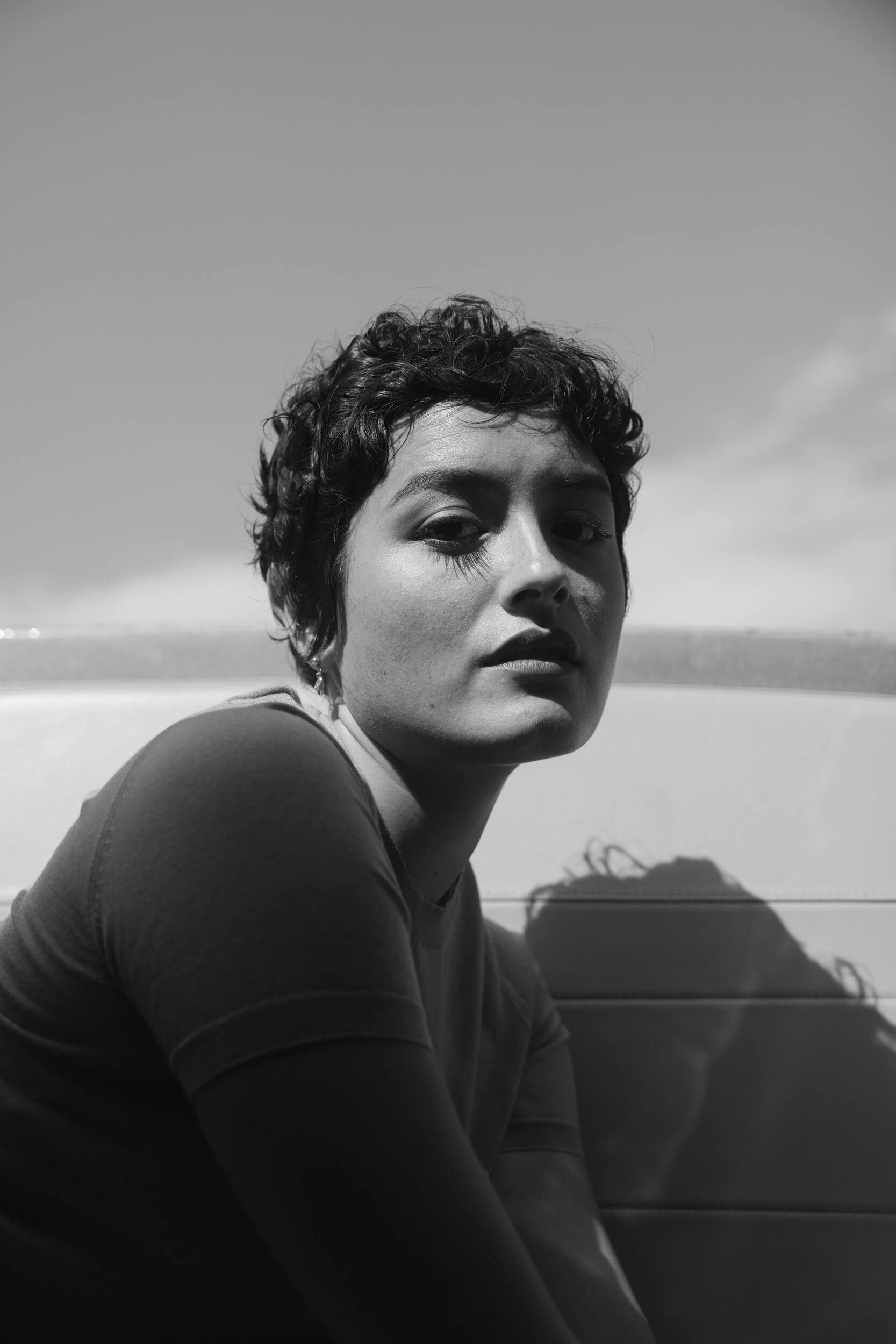
Photos by Johnny Carrano.
Makeup by Emma White Turle.
Hair by Stefan Bertin.
Styling by Thomas Carter Phillips.
Location: Palazzo Garzoni.
Thanks to Miu Miu.

